Blog test August
Blog
- Home
- Blog
Featured
Career-Switcher: Mr Theeban
Mr Theeban, who is 25 years old this year, loves learning. Currently, he is taking up the Workplace Safety, Health, and Security courses with NTUC LearningHub (LHUB).
What led him to take up two different courses? "Passion in learning and open myself to more career opportunities,” replied Theeban with a smile.

Stories
Discover how learning has transformed the lives of others, and be inspired to embark on your very own learning journey.

10 Reasons Why You Should Consider Being a Certified Information Systems Security Professional (CISSP)
In this digital era where a considerable portion of our day-to-day activities from education and communication to banking and finances depend on information technology, a significant rise in cyber crimes and cyber threats can be witnessed. In order to avoid and prevent the risks posed by malicious activities such as phishing, DDoS, and data breaches, various cybersecurity systems have been developed and implemented by many organisations at present.
Along with the establishment of various cybersecurity solutions across businesses, the demand for cybersecurity professionals who are capable of operating and maintaining them has also shown rapid growth. If you are searching for a promising career path that comes along with many benefits, cyber security can be considered one of the best options ahead of you. In this blog article, we will reveal 10 reasons why you should consider obtaining the CISSP certification to become a professional in cyber security.
What Is CISSP Security Certification?
The Certified Information Systems Security Professional (CISSP) certification is a globally recognized program offered by the International Information System Security Certification Consortium, or ISC2. It is more like a PR certificate that grants you access to enter the cybersecurity industry. It is an indication of your possession of knowledge and skills in the subject, along with the ability to design, implement, and manage security systems that minimize the risk of cyber threats. The first step to obtaining this certification is to enroll yourself in the ISC2 CISSP course, which we offer at NTUC LearningHub. Covering the basic areas such as security and risk management, asset security, identity and access management, and more, this course will ensure that you are well prepared to enter the vast job market of the cybersecurity sector.
Becoming ISC2 certified in cybersecurity in a digitally advanced country like Singapore can significantly boost your career growth. Here are 10 reasons why you should consider following a cybersecurity course in Singapore and obtaining the CISSP certification.
1. Job Opportunities
Completing the CISSP certification opens doors to various job opportunities in the cybersecurity field. Some of the roles you can pursue include cybersecurity analyst, security consultant, IT auditor, security architect, security manager, and chief information security officer (CISO).
According to a Job Vacancy Survey conducted by the Ministry of Manpower (MOM), the demand for cybersecurity professionals in the job market has increased by 30 to 40% from 2015-2020. At present, organisations across industries, including finance, healthcare, government, and technology, actively seek CISSP-certified professionals to secure their systems and data.
2. International Recognition
As it is offered by the ISC2, the CISSP certificate is recognized globally as a standard of excellence in cybersecurity. Whether you're based in Singapore, the United States of America, or any other country, the value and recognition of your CISSP certificate will remain unchanged. It demonstrates your proficiency in cybersecurity principles and best practices, making you a desirable candidate for employers worldwide.
3. Career Advancement
Earning the CISSP certification offers you valuable opportunities for career advancement. At present, many employers prefer or require CISSP certification for senior-level cybersecurity positions. By becoming CISSP-certified, you can differentiate yourself from other candidates and position yourself for promotions and leadership roles within your organisation.
4. Attractive Salaries
CISSP-certified professionals often receive higher salaries compared to their non-certified counterparts. According to industry reports, the CISSP certification can lead to a significant salary hike, with some professionals earning up to 25% more than their non-certified counterparts. By investing in CISSP certification, you effortlessly secure a lucrative career in cybersecurity. Here’s a general overview of annual CISSP salaries in Singapore:
| Job Position | Average salary for up to 4 years of experience | Average salary for 5-10 years of experience | Average salary for those with 10+ years of experience |
|---|---|---|---|
| Information Security Manager | S$80,000- S$90,000 | S$92,000 - S$110,000 | S$120,000+ |
| Chief Information Security Officer | S$85,000 - S$96,000 | S$100,000 - S$120,000 | S$130,000+ |
| Information Security Analyst | S$49,000 - S$55,000 | S$56,000 - S$70,000 | S$85,000+ |
| Security Architect | S$48,000 - S$54,000 | S$55,000 - S$66,000 | S$70,000+ |
| Security Engineer | S$60,000 - S$65,000 | S$67,000 - S$80,000 | S$90,000+ |
| Information Security Officer | S$70,000 - S$75,000 | S$78,000 - S$89,000 | S$100,000+ |
| Information Security Engineer | S$64,000 - S$69,000 | S$70,000 - S$80,000 | S$92,000+ |
5. Industry Credibility
The CISSP certification enhances your professional credibility within the cybersecurity industry. It signifies that you have the knowledge, skills, and experience to effectively address cybersecurity challenges and protect organisational assets.
6. Continuous Learning
Maintaining CISSP certification requires ongoing education and professional development. The ISC2 requires CISSP-certified professionals to earn continuing professional education (CPE) credits annually to stay current with the latest trends, technologies, and best practices in cybersecurity. This commitment to continuous learning ensures that CISSP-certified professionals remain at the forefront of the industry and can effectively address evolving cyber threats.
7. CISSP Member Benefits
By becoming a certified cybersecurity professional, you will be entitled to various exclusive benefits offered by the ISC2. They include:
- Networking Possibilities
- ISC2 Discounts on Education
- Free Webinars
- Journal of Information Security
- Free and Discounted Events
8. Networking Opportunities
The International Information System Security Certification Consortium often hosts events, conferences, and virtual forums. CISSP-certified professionals can make them valuable opportunities for networking, connecting, collaborating, and sharing knowledge with peers. This way, you can receive insights, support, and career advice throughout your journey.
9. Engage with a Global Community
The CISSP certification grants you membership in a global community of cybersecurity professionals. As part of this community, you will have access to resources, tools, and forums where you can engage with like-minded professionals from around the world.
10. Contribution to Organisational Security
Moreover, investing in CISSP training for employees is an important step for many organisations to further bolster their organisational security posture. Here are the key reasons why upskilling employees with CISSP certification and promoting a culture of cyber awareness is pivotal for companies:
- Improved Protection of Sensitive Business Information
When employees are enrolled into the CISSP certification course, they learn how to protect sensitive business information from malicious hackers. Employees will learn the strategies commonly used by hackers to steal important information. For example, hackers will often attempt to circumvent established security methods to make off with sensitive information. During their CISSP certification, employees will learn how to avoid them successfully.
For example, during phishing attacks employees may be lured into opening a malicious link when hackers disguise themselves as a credible source. These malicious links may contain harmful viruses and malware which can cripple organisational workflows and ultimately the company. Other commonly used attacks include social engineering attacks where employees are deceived into revealing sensitive information over emails or phone calls. Hence, CISSP training creates awareness amongst staff so they discern between credible sources and potential threats.
- Risk Identification and Mitigation
The CISSP course will also empower employees to critically evaluate a business network to pinpoint potential areas for a security breach. Vulnerabilities can exist in various forms within the business network including the hardware, software and backend operational systems.
For example, a vulnerability in software can include an expired antivirus protection which heightens the risk of viruses and malware. On the other hand, a risk in hardware can present as a malfunction within the organisation’s computers or hard drives. These can lead to a loss of important data and unnecessary downtime for the business. Hence, when employees are able to proactively identify these vulnerabilities, it helps organisations to address and mitigate these vulnerabilities.
- Enhance Company Reputation and Client Trust
Any organisation that is holding onto confidential user information is tasked with securing these details, hence the leaking or theft of data can cause untold damage to the company’s reputation. This will erode customer trust which is quite difficult to regain. When employees are trained in CISSP certification, they are taught how to take proactive steps to protect client and business-related information.
CISSP Requirements: How Can I Get My CISSP Certification in Singapore?
If you are interested in advancing your career in cybersecurity, you can simply get started with the ISC2 Certified Information Systems Security Professional (CISSP) course at NTUC LearningHub. This is a SkillsFuture cybersecurity course in Singapore that gives you eligibility to sit for the CC exam. This course is open to anyone, especially those who are coming from a security or ICT background. Unless you are entering the course just for knowledge, it is recommended that you possess the following requirements at enrollment:
- A minimum of five years cumulative paid work experience in two or more of the eight domains of the CISSP CBK
- A four-year college degree, a regional equivalent, or an additional credential from the ISC2 approved list
However, if you do not have the required work experience to become a CISSP, you still stand a chance to become an Associate of ISC2 by passing the CISSP exam.
Upon completing the course with a minimum attendance of 75%, you will receive a valuable Certificate of Completion from NTUC LearningHub and a Statement of Attainment (SOA) from SkillsFuture Singapore. Depending on your professional goals and interests, you can pursue further qualifications by sitting for the CISSP exam conducted by the ISC2 once you complete this course.
Join NTUC LearningHub and Be a Professional in Cybersecurity!
Ready to take your cybersecurity career to the next level? Join NTUC LearningHub and start your journey today! Along with our CISSP course, we offer various other courses related to it, such as the Implementing and Administering CISCO Solutions (CCNA) course and the EC-Council Certified Ethical Hacker (CEH) course. Whether you are looking to reach new heights in your career or seeking knowledge on the subjects of your interest, visit our website and explore the endless opportunities awaiting you.
Upskilling for a new career post-retirement
Retirement creates the perfect opportunity to pursue long standing interests. This was proven to be true for 62-year-old Boon Huat. A former senior manager in the motor vehicle industry, retiree Boon Huat decided to utilise the extra time he had to explore his interest in coffee. An avid coffee drinker, he was always keen to learn more about how to perfect the art of brewing a good cup of coffee. Thus, he enrolled into Workforce Skills Qualification (WSQ) Provide Speciality Coffee Service and WSQ Prepare and Serve Local Hot and Cold Beverage courses at NTUC LearningHub. Through the courses, Boon Huat was enlightened on the different brewery skills needed to make a wide range of hot and cold beverages with consistency and serving the beverages. He was able to seamlessly ride through the course and with the support of his seasoned trainers, enabling him to successfully complete the two courses. The course did not just fulfill his interest to expand his horizons, but it paved the way to a career in a new industry. As a naturally driven person, Boon Huat readily grabbed the opportunity when he was offered a job in the food services industry. Today, he works as a barista where he not only brews coffee for his patrons but also serves them sandwiches and toasts, putting his newly acquired knowledge to practice. “Through the course, I now have wider knowledge of coffee and coffee brewing skills. I have definitely been able to apply what I have learned from the course and have been able to brew better coffee with more practice. I am excited for what this new career and industry brings.”

Learning Never Stops: Reskilling for a Career Switch
Calvin Tan, the owner of a board game shop since 2017, found his business significantly affected during the pandemic. Recognising the lasting effects and prolonged challenges of global disruptions, he grew increasingly worried and began to consider his options, including the possibility of permanently closing his shop to seek out an alternative source of income.
Formerly a Project Management professional, he planned to return to the same profession However, he knew that he needed to update his skills to boost his employability and to keep up with the latest trends in Project Management. Due to his prior experience attending several courses offered by NTUC LearningHub (NTUC LHUB), Calvin began to research on courses related to his desired profession. Subsequently, Calvin enrolled in courses related to agile and project management. Despite being unfamiliar with the Agile methodology, Calvin was eager to learn something new that would improve his job prospects.
With his newly acquired skills, Calvin landed an Assistant Project Manager role in the IT software development industry in 2021. He credits his continued success in his profession to the courses he took at NTUC LHUB which enabled him to contribute meaningfully at the workplace. In his present role, Calvin is involved in various projects that utilises a wide range of methodologies, namely Waterfall and Agile methodologies. Recognising that the Agile approach has yet to gain widespread adoption among companies in Singapore, he leverages his expertise to enlighten clients about its advantages. For instance, he explains to them how Agile’s iterative modifications can lead to results that better match their expectations. Even after securing employment, Calvin upskilled further by undergoing NTUC LHUB’s PMI-Agile Certified Practitioner course.
Now, determined to continuously upskill, Calvin sets himself yearly personal targets in his career with at least two on learning new skills. Calvin attributes his desire to continuously upgrade himself to being inspired by a fellow coursemate, a senior in his late 50s who embodies the “Never Stop Learning” attitude.
“Tech is an ever-evolving sector. What you learn today can become obsolete tomorrow. This is something I tell my friends – that I must know what is happening tomorrow, yesterday,” he shared. “The day you stop learning is the day you begin to fail”.

Learning Never Stops: Reskilling for a Career Switch
Calvin Tan, the owner of a board game shop since 2017, found his business significantly affected during the pandemic. Recognising the lasting effects and prolonged challenges of global disruptions, he grew increasingly worried and began to consider his options, including the possibility of permanently closing his shop to seek out an alternative source of income.
Formerly a Project Management professional, he planned to return to the same profession However, he knew that he needed to update his skills to boost his employability and to keep up with the latest trends in Project Management. Due to his prior experience attending several courses offered by NTUC LearningHub (NTUC LHUB), Calvin began to research on courses related to his desired profession. Subsequently, Calvin enrolled in courses related to agile and project management. Despite being unfamiliar with the Agile methodology, Calvin was eager to learn something new that would improve his job prospects.
With his newly acquired skills, Calvin landed an Assistant Project Manager role in the IT software development industry in 2021. He credits his continued success in his profession to the courses he took at NTUC LHUB which enabled him to contribute meaningfully at the workplace. In his present role, Calvin is involved in various projects that utilises a wide range of methodologies, namely Waterfall and Agile methodologies. Recognising that the Agile approach has yet to gain widespread adoption among companies in Singapore, he leverages his expertise to enlighten clients about its advantages. For instance, he explains to them how Agile’s iterative modifications can lead to results that better match their expectations. Even after securing employment, Calvin upskilled further by undergoing NTUC LHUB’s PMI-Agile Certified Practitioner course.
Now, determined to continuously upskill, Calvin sets himself yearly personal targets in his career with at least two on learning new skills. Calvin attributes his desire to continuously upgrade himself to being inspired by a fellow coursemate, a senior in his late 50s who embodies the “Never Stop Learning” attitude.
“Tech is an ever-evolving sector. What you learn today can become obsolete tomorrow. This is something I tell my friends – that I must know what is happening tomorrow, yesterday,” he shared. “The day you stop learning is the day you begin to fail”.

Boosting his Career Growth with Specialist Knowledge
Matchy Ng, in his 40s, recalled when he was a Human Resources (HR) executive in the manufacturing industry where he handled tasks such as payroll, absentee processing, expatriate management and data entry. It was during this time that his colleague introduced him to the power of technology, which led him on a journey to enhance his skills and advance his career by pursuing a tech-enabled role in HR.
Matchy’s colleague demonstrated how macro – a recorded set of commands – could do the same work more efficiently. This spurred him to explore the use of macro where he subsequently created a programme to replace daily tasks, which his team found useful. Driven by an innate curiosity and a desire for continuous improvement, he consistently sought avenues to broaden his knowledge and skill set.
This hunger for learning ignited Matchy’s ambition to become a HR Information Systems (HRIS) specialist, leveraging technology to increase functional productivity. In pursuit of this goal, he enrolled in various courses by NTUC LearningHub (NTUC LHUB), including Data Analytics, Data Visualisation and Python Programming Fundamentals to equip himself with the necessary skills to advance his career.
“Attending courses not only boosts my confidence in the specific skill sets that I was trained in but also gives me the extra edge over other job applicants. I also find that employers have more confidence in your abilities when you have certifications from trusted training providers like NTUC LHUB,” he shared. Now a HRIS consultant in the banking and finance industry, Matchy reflected on how his expertise in data analytics and programming allowed him to reinvent processes and methodologies at work.
With the aim of becoming a HRIS director, Matchy remains committed to acquiring skills to help him advance in his career, such as pursuing a tech-centric master's degree in the future. "With perseverance and continuous learning, you will become an expert who can put your learning to good use and achieve your goals," he said.

Turning his passion into reality through upskilling
26-year-old Benjamin has always had a keen interest in brewing the perfect cup of coffee, having tasted his first cup of cappuccino when he was 17 on a school trip. Since that encounter, he became captivated by the beverage and wanted to dive deeper into its origin and the art of coffee making.
On the encouragement of his parents, Benjamin, then a waiter in the hospitality industry, decided to professionally develop himself by pursuing his interest in coffee-making through a Workforce Skills Qualification (WSQ) Provide Specialty Coffee Service course at NTUC LearningHub. He enjoyed learning about the intricacies of gourmet coffee making, including striking the right balance in taste using grinder calibration and the distinct layers of milk and espresso that sets apart the various types of coffee drinks. “I also learned a lot more about the difference between Cappuccino and Café Latte, like how Cappuccino generally has a lot of more froth compared to Café Latte. I even learned that Café Mocha can be prepared with cocoa powder, rather than using chocolate sauce,” he quips.
The learning journey was not always smooth sailing for him, but Benjamin practised diligently and aced his final coffee practical. Having successfully completed the course, Benjamin now works as a barista where he puts his newly minted skill to good use at work while also building upon the shared knowledge of his experienced colleagues. He credits the course for helping him transform his passion into a reality, where he can go beyond simply serving customers but also be responsible for the preparation of the food that he serves. The passionate coffee connoisseur endeavours to continue upskilling in coffee-making to share his knowledge with others.
“I intend to continue practising and further fine-tuning my skills in coffee making, so that I can make better and better coffee for my customers every day. This will also be essential if I were to train others, including those with special needs, if I ever get such opportunity to share my knowledge and experience with them.”

Boosting Employability Through Technical and Soft Skills
Having worked as a procurement specialist with a chemical/mining services company for over a decade, Mariska Tan, who is in her 40s, began considering other job opportunities. The idea of leaving surfaced as there were talks of her company outsourcing talent, and was further fuelled by the responsibility of caring for critically ill family members. Mariska eventually made the brave decision to resign.
With her newfound time, Mariska decided to take up a course at NTUC LearningHub (NTUC LHUB) after hearing numerous positive reviews about learners’ experiences. She chose to take a six-month Community and Partnership Specialist course, which offered modules in digital marketing, event planning and Privacy Data Protection Act (PDPA) — all of which were of interest to her. She felt fortunate to be surrounded by classmates from diverse backgrounds, who pushed her to be the best version of herself intellectually and professionally.
In the midst of her job search soon after she completed the six-month course, she still felt uncertain about her chances of securing new employment. Taking the advice from NTUC LHUB’s Skills Consultant, she also enrolled in the Career Resilience Executive Workshop (CREW by e2i) to equip herself with relevant interview skills.
The workshop not only boosted Mariska’s confidence during the interview process, but also gave her a unique advantage which differentiated her from other applicants. She wrote a handwritten card to her interviewers to express her gratitude for their time – a skill she learned from the CREW workshop. Serving as an added bonus beyond her technical capabilities, her sincere gesture demonstrated her soft skills, thereby creating a lasting impression on prospective employers and playing a part in landing her a job. The skills she acquired from both the course and workshop further enhanced Mariska’s relevance in her current role as a procurement and sustainability professional in an event organising company.
To all those who are afraid to take that first step into uncertain territories, Mariska shares, “It is never too late to make a change in your life if you put your heart into it and stay positive.”

Retrenchment to Resilience: Navigating Career Challenges Through Upskilling
Stanley Lee, a seasoned professional in his 50s with over 20 years of experience under his belt, found himself unexpectedly retrenched from his role as a Systems Engineering Manager. Having dedicated five years to this position, he was taken aback by the news, prompting a discussion with his wife about their financial situation. They decided it was best to hide the news from their daughter, especially since she had just received her 'A level' results and was in the process of applying for university, to avoid worrying her.
Proactive in nature, Stanley first checked his finances to see if he had enough to fund his daughter’s education. Next, he updated his resume and kept track his job applications using a spreadsheet. Unfortunately, as it was during the early stages of COVID-19, many companies were wary of hiring. Three to four months of unemployment did not deter him; he remained calm and searched for courses to upskill and reskill himself to boost his employability. Ultimately, he enrolled in the Artificial Intelligence (AI) and Robotics course at NTUC LearningHub (NTUC LHUB) driven by his childhood passion for robotics and programming.
He found the course to be enriching, with trainers who possessed extensive industry expertise and coursemates who made learning more engaging. “We were able to create collaborative learning environment by sharing knowledge and experiences, as well as networking with fellow coursemates and trainers,” he opined.
Although Stanley left the course some months later after receiving a job opportunity as Principal Engineer for a local Infosecurity organisation, he mentioned that the programming and critical core skills he learnt came handy in his cybersecurity role and were applied in a couple of key projects.
Now as a Senior Systems Engineer for a Modern Data Protection and Data Platform company, he noted that the course broadened his understanding and expertise as he progressed, both refreshing and improving his abilities. Moreover, it gave him confidence that it was still possible to expand his skill set, regardless of age.
“Some roles may utilise your newly acquired skills, while other skills learnt may have indirect application too,” he shared. “I do believe a balance between technical and non-technical skills are beneficial and a must have. As long as you have the commitment and determination, you can demonstrate and apply your new knowledge and skills.”

From Business Owner to Healthcare Assistant: Reskilling to Pursue her True Passion
Hit hard by the pandemic in 2020, Lilik Mariyatin, in her mid-40s, found herself at a loss after being compelled to close her salad bar business, which she had ran for seven years. "Closing my business left me worried about my family's finances, especially since I was supporting my son's education. But I was also concerned about how the closure would impact my staff, who are like family to me," she said.
To cope with these worries, Lilik channelled her focus into volunteering by distributing food to low-income families with her newfound time, which she has actively been involved in since the start of the pandemic. After spending the bulk of her time on volunteer work, she developed a passion for helping others and became eager to pursue a career in the healthcare industry despite her lack of experience. “Pivoting into a new field can be intimidating, but it is often necessary to advance one’s career and reach their full potential,” she remarked. Thus, Lilik adopted a growth mindset and took the leap of faith to acquire a new set of skills as she embarked on a career switch.
After being recommended by her friend to explore the various courses offered by NTUC LearningHub (NTUC LHUB), she signed up for the Healthcare Assistant Course. Besides the comprehensive and industry-relevant curriculum, Lilik was particularly grateful for her experienced trainer, who delivered engaging lessons, and for the chance to connect with coursemates from diverse backgrounds. This reassured her that she was not alone in her career transition, which made the process less daunting.
Upon completing the course, Lilik secured a role as a healthcare assistant in a hospital. Her duties include patient nutrition and fluids management, mobility assistance, and patient care delivery which she mastered through the course. “The course was a blessing in disguise as it came at the right time and opened a door for me to turn my passion into reality. I entered a new career that sustains comfortable living while allowing me to positively impact the lives of others,” she beamed.

Upskilling As An Applied VR and Gam Specialist With No Experience: Nu'Aim Dahlan's Journey

Hello Francis Yeo – NTUC LearningHub’s True Blue Lifelong Learner
As an intern with NTUC LearningHub (NTUC LHUB), my conversation with Francis Yeo was quite an experience. At the age of 62 years old, he generously shares a wealth of stories, experiences and advice with us throughout the interview. His genial personality held my undivided attention when he brings me through his lifelong learning journey from his youth to now, every chapter leading up to how he eventually helms the role of head of Technology Partnership and Digital Transformation with NTUC LHUB.
Embarking On The Learning Journey
“I joined NTUC LHUB because I was invited, honestly.” he laughed. It’s this candid openness, this willingness to share, that makes him so approachable.
Francis
“I was quite playful when I was younger, I didn’t take my studies very seriously,” he reminisced. While most people recounting those days may have hinted at regrets (for not studying hard enough), Francis seemed to realise that this unconventional life path (for his time) is what brought him down the road he took over the past 30 years. He discovered his love for electronics at the age of 17, when he soldered and built amplifiers during his time at his school IT club. This interest in IT during that time was not a common route for many as there is a general mistrust of computers and higher technology at the time.
Next, he advanced to STI (Singapore Technical Institute) where he attained the Industrial Trade Certificate, equivalent to the modern-day ITE Higher Nitec Certification. Driven to push on further in his quest for knowledge, Francis took on a private diploma programme. The programme involved a significant self-studying which honed his discipline and commitment towards goals.
To complement his acquisition of theoretical knowledge, Francis joined Singtel as a trainee technician, where he was bonded on a 3-year probation. To pursue this option, he sacrificed the chance to learn the ropes for his father’s business, which might have been the easier, more comfortable path. Upon receiving his diploma, Francis re-calibrated his career ambition and set his sight on the managerial role.
Determined and through sheer dedication and will, he finally received his promotion after being interviewed no less than 12 times! “I was the first person to clear my bond at the point of promotion!” he beamed. The promotion allowed him to clear his bond as a technician. As he explained this, the years of experience crinkled around his eyes as he experienced the pride he had felt those many years ago, all over again.
“When I was 27 or 28, they stationed me at a telephone installation base – and I had around 70 staff under me at the time, some as old as their late 40’s to early 60’s,” he recounted. He shared that becoming a leader is never easy, especially when one is less than half the age of their oldest employee.
Learning As A New Leader
“As I was new to the leadership position, I had to adapt and learn to become a leader. The learning curve was steep.” He said. It was made even tougher at a time when the Singapore organisations were facing rapid technology changes. Walking the talk, Francis contributed a total of 16 years at Singtel, testing his mettle supported by consistent enhancement of leadership and technology skills.
Francis did not just limit himself to just learning about existing technology. He ventured into the emerging field of coding during his time at Singtel as well. Note this happened at a time when computers are starting to be a tool of the workplace. This is evident that Francis was highly adaptable for his time. Shortly after teaching himself how to code, he decided to pursue his second diploma – an advanced diploma in Computer Science.
Equipped with the relevant qualifications and skill sets, Francis joined Hutchison Telecoms (Thailand) as the Business Development Director. If you think he will be satisfied with his two diploma qualifications, you do not know Francis well enough. He resolved to pursue his Bachelor’s Degree in Computer Information Systems, through a distance study programme.
He accomplished all this while having gotten married, having a child and working full time, making a poignant point on how despite its various challenges, heading back to school once working full time is perfectly achievable. This is yet another way however Francis is the living embodiment of NTUC LearningHub’s message of learning and continuous improvement throughout one’s career, to stay relevant in the shifting economy.
He subsequently became the General Manager of Sapura Technology Singapore. These 2 stints helped to build and establish his connections to the movers and shakers in the technology industry, priming him for his current role at NTUC LearningHub.
Throughout his career, Francis travelled and work in many destinations across the globe and that served to further his understanding of different cultures and allowed him to experience more than he could have learned if purely staying in Singapore, which is something he attributes to his success. However, all this time away from the country made Francis realise that his drive, truly, was his family.
“They’re always waiting for me at home while I’m flying all over the world… they motivated me to keep doing better,” he said, referring to his wife and daughters.
The Learning Never Stops
Even now at NTUC LearningHub, Francis has never stopped learning and continued to immerse himself with emerging technology and innovations.
The voracious learner has over his 6 years with NTUC LHUB acquired the Advance Certificate in Training & Assessment (ACTA), Diploma in Adult Continuing Education (DACE), MSc in Skills and Workforce Development (Cardiff University/IAL) as well as the Certified Career Advisory Program. That’s not all. Just a few years ago (in his 50’s), Francis decided to go back to school to earn his Masters.
Joining NTUC LearningHub made Francis realise his passion for adult education and the joy behind imparting his vast knowledge and experience for the betterment of others.
“When I joined LHUB, I decided to get certified as an adult educator,” he said, clearly committed to his mission of sharing his wealth of experience. He serves as a career advisor to local start-up companies as well as young adults who are just starting out to determine a career that they love that also suits their interests.
When asked about what advice he would give to his fellow LHUBbers, he paused for a moment and clasped his hands before answering. “Know thyself first, and what you want to do. Don’t be distracted by the pay, position, or whatever glory you think you want.” he said. And if anyone would know, with wealth of life experience to draw on, it would definitely be Francis.
Article by: Chloe Teo
This year, NTUC LearningHub celebrates 15 years of transforming people through accessible and affordable education. Since 2004, we have fulfilled over 2.4 million training places and transformed over 21,000 organisations.
Regardless of collar, age or nationality, we are here to help you upgrade your skills to keep up with a rapidly changing workforce. For more information on how we can help, talk to our friendly Course Consultants at NTUC Trade Union House, Devan Nair Institute for Employment and Employability, LHUB@Tampines Mall or any of our roadshows islandwide.
Opinions
Gain insights from our fellow LHUBBERS as they share their own learning journey, and views on emerging trends in their specialised fields.

Continuously Transforming Myself to Keep Abreast of Cybersecurity
By Kenneth Choo Luo Yi, Deputy Director, Cyber and Governance Digital Technology
Embarking on a learning journey can be one of the most significant life investments that allow us to explore our passions, develop our skills, and shape our future in an introspective and transformative way. In this reflective piece, I will share my personal story and the impact continuous learning has had on both my personal life and career, particularly in the realm of cybersecurity. I hope this can motivate others to seize new opportunities and invest in themselves to grow and succeed.
My journey in the world of technology started with managing Information Technology (IT) infrastructure and operations. Then, I became aware of the significant role technology plays in our lives and the increasing need for robust security measures. Having the privilege to work across various industries from Healthtech, and to now Edtech for nearly 20 years, I witnessed the evolution of cyber threats and the potential risks they posed to organisations. This sparked my growing interest in cybersecurity even further.
I realise that cybersecurity is not just a technical field but a critical aspect for business operations to run seamlessly. By specialising in this field, I play a more direct role in protecting digital systems and data from malicious attacks. I also appreciate the unique community of cybersecurity, where like-minded professionals come together easily to share knowledge and secure the ecosystem as a whole.
THE BEST OF BOTH WORLDS
Throughout my career, various significant milestones shaped my path and propelled me forward in my pursuit of the cybersecurity domain. Having worked in the public and private sectors, I am able to compare the distinct differences, yet equally dynamic and challenging landscapes.
In the private sector, organisations are mainly driven by factors such as sales, profitability, and market competition. As businesses embark on digital transformation and rely on digital platforms to sell their products or provide their services, the need to implement robust cybersecurity measures becomes of paramount importance. However, more often than not, organisations are playing catch-up in this area and face a constant battle against cyber threats such as data breaches and ransomware attacks, especially Small and Medium Enterprises (SMEs). The increased focus on tightened regulation and personal data protection, such as the Personal Data Protection Act (PDPA), further amplifies these challenges. It can be challenging to achieve a good balance in the investment of cyber measures versus other areas of the business as well, and it is always tough to determine if the investment is adequate. To overcome this issue, the cybersecurity trend in recent years is towards a risk-bask approach, where practitioners identify assets of higher risk by value and apply the appropriate controls based on the risk level. This approach helps provide better guidelines and enables organisations to allocate their cybersecurity resources more effectively.
On the other hand, the public sector operates within a unique landscape with different objectives. At the broad level, it focuses on digitalising Singapore towards becoming a Smart Nation and using technology to improve citizens’ life. At the same time, they are also responsible for securing our critical infrastructure (such as power, transport, healthcare) and protecting our sensitive information from sophisticated attackers. A successful cyber-attack on a government system can have far-reaching and adverse repercussions, impacting citizen safety and the nation's reputation.
It was intriguing to witness the growing importance of cybersecurity in different sectors and the critical need for skilled professionals to safeguard vital information and infrastructure. This demand is still growing positively today and there is a need to have a bigger pool of experts in this domain to ensure businesses have the capability to protect themselves from cyber-attacks, as more companies continue in their digital transformation journey.

COVID-19 Is Changing The Way We Learn – Here is How to Keep Up
In these unpredictable times, people around the world have to adjust to new ways of living, working, and studying. COVID-19 is impacting the very way we learn, so it is up to us to stay resilient in the face of change.
The future is digital, they said. Little did we know the future would come so soon, as the world transitions towards operating online in a bid to stay afloat. While we grapple with this new reality, where face-to-face gatherings and in-class education are put on hold, digital skills and online capabilities become ever so important.
Digitalisation is in Full Swing

Online learning is nothing new for many. Recall those e-Learning lessons back in school? Such initiatives across Singapore aim to prepare students to continue learning online in the event of school closures. Harnessing and incorporating information and communication technology (ICT) in our education has become the norm.
But as life strays farther from the norm in the midst of the COVID-19 outbreak, it is the individuals and companies who turn to digital solutions that can weather the storm. From the surging demand for online tutors, to an Italian grandmother who live-streams her pasta-making courses from her home in Italy, the bleak news of the outbreak have been accompanied by uplifting stories on how learning never goes on lockdown.
In fact, there is no better time to learn than now. With advanced access to your $500 SkillsFuture Credit Top Up when you learn with NTUC LearningHub (NTUC LHUB), plus an additional $250 Upfront UTAP funding for Union members, learning is now more accessible and affordable than ever!
The NTUC LHUB trainers are really engaging, and they often share with us real-life anecdotes that reinforce our learning.
Learn from Home with NTUC LHUB

Upskilling during the Circuit Breaker downtime is a surefire way for you to emerge at the other end of the COVID-19 tunnel equipped with relevant skills, and NTUC LHUB is dedicated to providing you with ample opportunities for you to learn from home.
For starters, how does over 100 free online courses sound? NTUC LHUB has partnered with GO1, a world-class award-winning e-learning platform backed by Microsoft and SEEK, to bring you a thoughtfully curated list of online courses. Choose from a wide range including Data Analytics, Agile, Python Programming, Microsoft Office, Leadership, Workplace Safety, Photoshop and Graphic Design!
If you are looking for NTUC LHUB programmes or SkillsFuture-eligible courses instead, we have converted a selection of our popular programmes across Adaptive, Technical, and Technological skills into Virtual Live Courses. Get certified in SkillsFuture for Digital Workplace, Personal Effectiveness (powered by John Maxwell), Project Management, Cybint Cyber Security Protection, and many more. Learn from the comfort of your own home, and engage with our trainers in real-time through your screen. Check back regularly for updates as new virtual courses are being added weekly!
Whether it is to hone your skills for better job prospects or to add new capabilities to your arsenal, our Virtual Live Advisory service can help you with your upskilling needs. Click here to book your appointment now, and you will be notified with a link via your email for your virtual meeting. Using Microsoft Teams Video Conferencing, speak with our Virtual Live Advisors about any queries, or let them find the right course for you!
Tips for Online Learning

It is easy to slip into a slower rhythm when learning and working from home, especially with plenty of potential distractions. Here is some advice on how to maximise productivity and get the most out of your online learning!
1. Create a Dedicated Study Space
Just like how a classroom is a dedicated space for learning, ensure you have somewhere at home that is purely for study. Whether it is your home office, bedroom or living room, find a quiet, distraction-free area that is separate from where you relax. This helps put you in the good state of mind to focus on the online course!
2. Come up with a Study Plan
Staying organised will help you to pace your learning. Take some time before your course starts to check what you will be learning, and schedule when to study and complete assignments. Alternatively, a simple daily to-do list can keep you on track. It is also a good idea to set goals for yourself, along with setting aside time to take regular breaks!
3. Participate in Discussions
When courses are conducted such that you can interact with trainers live, like our Virtual Live Classes, try your best to interact with your trainer and fellow trainees! Just because everyone is apart, does not mean that you cannot collaborate. By asking questions and engaging with the people in your course, it enables you to gain a better understanding of the lessons and sets you up to ace your assessment.
4. Take Notes and Revise
While sitting at your desk and staring at your screen, it is natural for our attention to gradually drift away. Stay focused by taking notes! Start typing or grab your notebook and pen ‒ regardless of your method of choice, taking notes promotes active thinking, maintains your attention, and enhances your comprehension. These notes can supplement the material provided by your online courses when you revise, and help you retain important information.

No matter what challenges lie ahead, having the right mindset for growth and developing a resilient attitude will be the valuable qualities that make you flexible towards change.
There is no doubt that the coming weeks and months will be filled with uncertainty, but it is also an opportunity to grow your skill sets and widen your knowledge. Let us help you keep your learning journey going so that we can all get through these trying times together!
Since 2004, we have fulfilled over 2.4 million training places and transformed over 21,000 organisations.
Regardless of collar, age or nationality, we are here to help you upgrade your skills to keep up with the rapidly changing workforce in 2020 and beyond. For more information on how we can help, reserve a Virtual Live Advisory appointment or leave us an enquiry and our friendly Course Consultants will be in touch with you soon.
Podcasts
Listen and subscribe to the ‘LHUB Conversations’ – a podcast series where we speak to industry experts on emerging trends and coveted jobs and skills.

acTransformed From Home Caregiver To Healthcare Assistant, Thanks To The SGUnited Skills Programme
test 15112023 edit test friendly url changea 07102024 301020245

The LHUB Conversations - The Buzz Surrounding Cybersecurity
Featured guest: Clayton Jones, Managing Director, APAC, ISC2
Cybersecurity is a critical component of business strategy for organisations of all sizes and across sectors due to the rise of the digital economy where organisations embark on digital transformation and intensify their efforts in building a robust digital infrastructure.
In NTUC LearningHub's latest report on Cybersecurity, only 1 in 5 business leaders are prepared to manage cybersecurity threats. With a lack of specialised skilled talent within the organisation (52%), resources to train workforce (52%), and basic cybersecurity knowledge among employees (49%) being the top challenge in ensuring cybersecurity.
In this episode, we speak with Clayton Jones, who represents ISC2, the world's leading member association for cybersecurity professionals. We discuss his thoughts on the current threats in cybersecurity and what companies can do to mitigate the shortage of skilled professionals in the security sector.
Find out more about the report on Cybersecurity to uncover the latest insights and trends with NTUC LearningHub’s research reports here.

The LHUB Conversations - The Buzz Surrounding Generative AI
Featured guest: A M Aditya, Co-founder and CTO at Xaltius & Xaltius Academy
Artificial intelligence (AI) has significantly impacted various sectors by automating routine tasks and augmenting human decision-making processes. Simultaneously, the advent of generative AI technologies, with the capability to create content, images, video, code and music, has brought forth a new paradigm of creativity and productivity.
In NTUC LearningHub's latest report on Future Jobs and Skills, business leaders generally hold positive views towards AI and Generative AI technologies. However, their concerns about security, legal and ethical issues remain in dealing with data. In this episode, we speak with data scientist AM Aditya to gain insights into the world of data science.
Find out more about the report on Future Jobs and Skills to uncover the latest insights and trends with NTUC LearningHub’s research reports here.

How The Hunger For Knowledge Keeps You Resilient
The marketing industry is never stagnant, which demands for rapid adaptation. Even with her years of experience in the field, NTUC LearningHub trainee Lesley Renton still chooses to upskill regularly, as validating and reinforcing her knowledge keeps her at the top of her game.
A successful veteran in the marketing and events industries, Lesley’s career has taken her from agencies in London to leadership roles of multinational companies in Indonesia and Singapore, before she took up her latest role at Clearwater Communications. As the Sales & Marketing Director of the award-winning boutique events marketing agency, she has her plate full with growing the business, expanding the client base, and driving large-scale event projects.
“I just love marketing. I’m very interested in psychology ‒ seeing what motivates people to say, think, and do certain things and how with the right message, marketing can change people’s natural behaviour,” enthused Lesley.
A Way to Verify Your Skills
With some spare time on her hands recently as a result of a mini-sabbatical, Lesley leapt at the chance to spend that time wisely and learn a few new things, one of them being Visual Communication Using Adobe Photoshop.
“Since I worked with creatives for many years and I direct visual campaigns, I wanted to learn more about Photoshop! I think taking courses allows you to hone your skills and sharpen your knowledge,” explained Lesley.
Despite her 30 years of marketing experience, she also took up ICDL Digital Marketing, proving that upskilling courses are not just for the uninitiated, but a method to validate your existing skills. “I already knew most of the things on the course due to my digital marketing experience, but it is always good to refresh your knowledge and if you come out learning one new thing, then it is worth it,” reflected Lesley.
"We should always look to deliver more every day and be better and better at what we do."
Since SkillsFuture Credit is not an option for her as a permanent resident, Lesley instead made full use of the Union Training Assistance Programme (UTAP) funding that is open to all NTUC members. “Tapping on UTAP makes training really affordable. I always see training as an investment rather than a cost, but it is quite nice when that investment is made more affordable!” she smiled.
Her positive classroom experience was the cherry on top of her learning journey with NTUC LearningHub. “I really enjoyed networking with fellow course mates. Learning with others is a great way to exchange knowledge and enrich the learning experience. The trainers were equally passionate in what they do, incredibly patient, and brought the whole subject to life,” she described.
Adapting to Disruption
With gatherings barred and events across Singapore cancelled in light of COVID-19, the events industry has been significantly affected. For event professionals like Lesley, finding unique ways to pivot and play the hand she has been dealt is how she stays competitive.
“I think the majority of the events industry is temporarily on hold due to COVID-19 and hoping for the situation to be resolved. One positive thing is that this forces you to come up with more creative solutions including virtual and hybrid events. Rather than postpone an event, you turn it into an engaging virtual experience and reach a larger audience too. It would be foolhardy not to embrace technology this period,” emphasised Lesley.
Along with the circuit breaker measures from the government are support initiatives – for instance, enhanced absentee payroll funding for employers who send their staff for training programmes. Lesley’s thoughts on such measures?

“Singapore is a great example of inspiring the whole society to be lifelong learners, from young kids to experienced seniors and everything in between,” she said. “You realise what an amazing country and life we have in Singapore, and we all need to believe that we will have that again. If we all do our part, we will crack this and overcome this together. Singapore is definitely united in this challenge!”
Why Lifelong Learning Matters
A self-proclaimed lifelong learner, Lesley constantly strives to trump the competition and wow her clients by giving them something they have never had before. “The marketing industry is constantly evolving, with new technology coming in such as the Internet of Things (IoT), cloud-based research tools, or artificial intelligence. I think everyone in marketing right now is a lifelong learner who needs to not just stay abreast of the latest trends, but ahead of them,” remarked Lesley. Lesley’s advice for those aspiring for a career in marketing? “Be passionate about your chosen career, be hungry for knowledge, research, research and research! Invest in yourself with training and have your finger on the pulse when it comes to industry developments, new technologies, and new ideas,” advised Lesley. As for her own optimal career goal, it is none other than work-life balance. It may sound simple, but is arguably the most challenging to achieve.

“I’m a passionate parent and I practise what I like to call ‘mum mastery’. I juggle three children with a very demanding job and life both inside and outside work,” Lesley shared. “So my short and long term goal is to achieve that happy balance between work and life!”
Since 2004, we have fulfilled over 2.4 million training places and transformed over 21,000 organisations.
Regardless of collar, age or nationality, we are here to help you upgrade your skills to keep up with a rapidly changing workforce. For more information on how we can help, talk to our friendly Course Consultants at NTUC Trade Union House, Devan Nair Institute for Employment and Employability, LHUB@Tampines Mall or any of our roadshows islandwide.

The LHUB Conversations Podcast - The Buzz Surrounding the Metaverse
Featured guests: Siddharth Jain, Chief Creative Director, Playware Studios and LDR Technology, and Shannon Tan, Head of Strategic Initiatives, LDR Technology.
The metaverse has been getting much buzz in recent years. A slow but growing number of consumers and brands are getting on board. As it evolves, it will improve work collaboration, expand the possibilities for learning and training, and bring a new experience in virtual interactions that is more immersive, diverse and innovative.
We spoke to Siddharth Jain, Chief Creative Director of Playware Studios and LDR Technology, and Shannon Tan, Head of Strategic Initiatives from LDR Technology, recently. We find out their views on the metaverse, and the many exciting possibilities it presents for businesses and organisations.
Find out more about the metaverse and uncover the latest insights and trends with NTUC LearningHub’s research reports here.
LXP
Explore popular bite-sized courses, beginner guides, and tips for topic mastery to help you develop a habit of lifelong learning with LXP.

A Closer Look at LHUB GO Infinity
In February this year, we launched LHUB GO Infinity — Singapore’s largest subscription-based online learning platform. With the inevitable workplace transformation and evolving job roles in this post-pandemic era, learners are increasingly realising the need to continue taking up new skills and constantly updating their skill set.
Ready to upskill? Find out how LHUB GO Infinity can help in your journey towards acquiring in-demand competencies highly coveted by employers.
1. Access to over 75,000 courses and more at your fingertips

LHUB GO Infinity boasts over 75,000 courses, with a wide range of topics to diversify your skill set for the transforming future of work. The extensive list of courses offered caters to learners from different backgrounds and competency levels, from basic to advanced skills and knowledge.
With courses created by world-class content providers such as Microsoft Learn, 365 Careers and BizLibrary, learners can enhance their employability with quality learning materials at their fingertips.
2. Courses are mapped to skills in-demand

LHUB GO Infinity’s courses are carefully curated to ensure they meet the in-demand skills of employers across Singapore.
In NTUC LearningHub’s Employer Skills Report 2021, Effective Communication and Digital Marketing are identified as this year’s in-demand skills coveted by employers across various industries. To boost your Effective Communication skills, look out for ‘Trust Building through Effective Communication’ by Skillsoft and ‘Effective Business Communication’ by Vado on LHUB GO Infinity. For Digital Marketing, ‘Introduction to Digital Marketing’ by Left Bank is great for beginners. If you only have five minutes to spare, ‘Future of Digital Marketing’ by Sarder Learning will give you a quick snapshot of Digital Marketing.
To check out the other top in-demand skills you can learn, download NTUC LearningHub’s Employer Skills Report 2021 here.
3. Learn at your own time and pace

As we continue to transition into a hybrid mode of working, picking up new skills is made simpler through LHUB GO Infinity’s asynchronous learning. You can start and pause at any point of the course without worrying about where you last stopped.
The courses are offered in ‘microlearning’ format, designed for bite-sized learning with durations ranging from as short as nine minutes to seven hours. From topics covered within five minutes to those that last for a few hours, you will get to decide how much time to set aside for the different courses of interest.
So, whether you are commuting to work or having your lunch break, learn anywhere, anytime with LHUB GO Infinity.
4. Enjoy personalised recommendations for your learning journey

Still unsure of which courses to take? LHUB GO Infinity allows you to personalise your learning journey, with a variety of topics and course providers to choose from. Filter your preferred topics and duration or even content type to find the perfect courses to match your learning style and needs. Learners can also select their topic of interests, and LHUB GO Infinity will do the rest to recommend the most suitable courses tailored specially for you. This way, you can enhance your employability by continuously exploring the platform and filling your own skills gaps.
For example, if you are looking for a quick crash course on Microsoft Excel and its functions, over 2000 videos are available to cover the fundamentals of Microsoft Excel with a step-by-step guide in under five minutes. Some notable content providers for Microsoft-related content include 365 Careers, Mi-Crow and Mind Channel.
With LHUB GO Infinity, learning is made accessible and seamless to anyone who seeks to diversify their skillsets.
Gain access to over 75,000 courses today on LHUB GO Infinity today. To learn more about LHUB GO Infinity, or sign up for a free trial, visit: https://www.ntuclearninghub.com/lhub-go/

How to Future-proof Your Career with Digital Transformation
Even before the pandemic, new and transformative systems and technologies were swiftly implemented in the business world, empowering companies to reinvent, innovate and succeed in an increasingly digital world. Propelled by the pandemic, technology advancements which were supposed to take years have now been accelerated to just a matter of months.
What is Digital Transformation?

Digital transformation is not a new fad in the business arena. The concept has been around since the mid-2000s. Digital transformation refers to the adoption of digital solutions to transform the services or operations of businesses. The realisation of the vision requires strong commitment from corporate leadership to effect a shift in paradigm across the organisation. From Human Resources, Operations to Marketing and Sales, all divisions will need to adopt fundamental shifts in daily work processes as well as the tools and platforms used.
Digital transformation allows us to push the boundaries of technology, challenge the status quo, discover news ways of optimising the business infrastructure, and redefine efficiency in business practices. To learn the fundamentals, start with the course, ‘What is Digital Transformation’ by Enspark, the top content provider on digital transformation.
Why should you be concerned about digital transformation?

In an increasingly connected world, digital transformation has become the main driving force behind business innovation and change. Limitless access to information and the seamless transition of technology has increased expectations at the workplace where you are now expected to have digital prowess. It is now more important than ever for you to make thoughtful decisions about transforming yourself digitally to remain relevant.
Embracing digital transformation secures a wide range of benefits for you too. Developing a digital culture encourages innovation and creativity. As conventional methods and processes become more automated, you will discover more flexibility and autonomy in your role and responsibilities at the workplace. Not only is communication enhanced, but your employee experience will be heightened by digital transformation as well. If you would like to learn more about the importance of embracing digital change, ‘Benefits of a Digital Corporate Culture’ by Enspark is a great place to start.
Course Title: Benefits of a Digital Corporate Culture
Course Provider: Enspark
Course Type: Interactive
How to jumpstart your digital transformation journey?

By embracing technology, you can increase your work productivity, learn to use analytic tools to gain data insights, train your agility, work mobility, and increase your digital repertoire. If you’re new to the world of digital transformation, there are three key domains to consider – Big Data, Blockchain and the Internet of Things. Here are some of our recommended bite-sized courses to help you get started.
Big Data
Big Data refers to the use of computers to analyse vast amount of information and identify patterns. Discover how Big Data is transforming your industry and find out how you can harness modern technology to improve services and operations.
Course Title: Digital Transformation: What is Big Data?
Course Provider: Enspark
Format: Interactive


Blockchain
Interested in crytocurrency? The technology behind cryptocurrency is known as blockchain, and it has created fresh opportunities for businesses around the world. Uncover the reasons for its growing popularity and learn about the financial opportunities it can bring you.
Course Title: Digital Transformation: What is Blockchain?
Course Provider: Enspark
Format: Interactive
The Internet of Things
We live in a connected world where devices can connect to the internet and send information to people, devices and systems. This network of connected “things” is known as The Internet of Things or IoT. Learn about the evolution of the Internet and how it will impact you.
Course Title: Digital Transformation: The Internet of Things
Course Provider: Enspark
Format: Interactive

Regardless of being a business owner or employee, digital transformation will have a lasting impact on you. Get a head start on digital transformation by trying out our recommended courses. Gain access to over 75,000 courses today on LHUB GO Infinity today. To learn more about LHUB GO Infinity, or sign up for a free trial, visit: www.ntuclearninghub.com/lhub-go

How to Harness the Power of Emotional Intelligence at Work
What is Emotional Intelligence?
Emotional intelligence is about the ability to recognise, understand and manage our own emotions and the emotions of others. Daniel Goleman, a psychologist and author who first introduced and popularised the concept, identified that there are four key domains that make up emotional intelligence. They include self-awareness and self-regulation which deal with managing one’s personal emotions, as well as empathy and relationship management which relates to the emotions of others.
If you would like to have a deeper look into what emotional intelligence entails, these courses allow learners to understand the concept itself, how it differs from other forms of intelligence as well as some benefits associated with emotional intelligence .
Course Title: Using Emotional Intelligence: Introduction (Part 1 of 8)
Course Provider: BizLibrary
Course Type: Interactive
Course Title: Introduction to Emotional Intelligence
Course Provider: Talent Quest
Format: Interactive
Why is emotional intelligence important at the workplace?

Given the rise of cross functional teams and collaborative ways of work, emotional intelligence has become more essential in the workplace than ever before. Emotional intelligence can help you to better navigate through the myriad of exchanges and activities at work. For example, emotional intelligence can aid in resolving conflicts and decision-making by preventing judgement from being clouded or emotionally charged.
Emotional intelligence is a valuable skill which has vast impact on various facets of the workplace. It helps to build rapport with colleagues and business partners by improving one’s communication, collaborative, and relationship management skills. Emotional intelligence also improves negotiation and problem-solving skills which are important to achieving strong business outcomes.
For those in leadership or managerial positions, emotional intelligence plays an even greater role as these roles are essentially about managing people. An understanding of emotional intelligence enables leaders to better manage their emotions and that of the team. While most leaders tend to focus solely on the performance of the teams, leaders should cultivate better relationships and understand their team inside and out.
This helps to cultivate a psychologically safe environment at work and encourages team members to strive through adversity. With the conducive working environment and greater compassion towards the team, emotionally intelligent leaders can effectively improve employee retention as well.
How can one develop emotional intelligence?

Given the breadth and depth of the concept, improving all four pillars of emotional intelligence is key. We recommend the ‘Using Emotional Intelligence’ eight-part video series by BizLibrary as a starting point. Through this interactive course, learners can look forward to discovering various tools and tips to strategically develop all four facets of emotional intelligence.
1. Self-Awareness
Developing your self-awareness sets the foundation towards increasing emotional intelligence. It is the ability to identify and understand what triggers your emotions. At this stage, you should be asking yourself questions such as ‘What am I feeling’ and ‘Why am I feeling this way’. Penning down these emotions and underlying reason for the emotion experienced can help to boost your self-awareness. For more tips, ‘Improving Your Self Awareness’ by BizLibrary allows learners to understand themselves inside and out.
Course Title: Using Emotional Intelligence: Improving Your Self-Awareness (Part 2 of 8)
Course Provider: BizLibrary
Format: Interactive
2. Self-Regulation
Self-regulation refers to having the power to pause between feeling an emotion and reacting to it. This is an important aspect as it helps you to control disruptive emotions and impulses, thereby preventing rash decision making at work. One way to practice self-regulation is to explore techniques to release workplace stress such as taking up a new hobby or exercising. The interactive course by BizLibrary on ‘Improving Your Self-Management’ gives leaners a deeper insight into the different ways to practice emotion regulation.
Course Title: Using Emotional Intelligence: Improving Your Self-Management (Part 3 of 8)
Course Provider: BizLibrary
Format: Interactive
3. Empathy
The third domain to develop emotional intelligence is empathy which is the ability to sense the feelings of others, understand their perspectives and how you respond to them. To increase empathy and perspective taking, try engaging in active listening as you interact with others. This entails asking questions and providing feedback which helps you to pay more attention to both verbal and nonverbal communication. To find out more, ‘Improving Your Social Awareness’ and ‘Social Awareness Tools’ by BizLibrary provides useful tips and practices on how to develop greater empathy.
Course Title: Using Emotional Intelligence: Improving Your Social Awareness (Part 4 of 8)
Course Provider: BizLibrary
Course Type: Interactive
Course Title: Using Emotional Intelligence: Social Awareness Tools (Part 5 of 8)
Course Provider: BizLibrary
Course Type: Interactive
4. Relationship Management
Relationship management is the ability to read situations and modify your response, navigate conflict skilfully and communicate effectively. A widely used tool for enhancing empathy is the DISC assessment which provides insights into your personal behaviour when interacting with others. Here are some of the recommended courses on LHUB GO Infinity to help you build stronger work relationships and social skills.
Course Title: Using Emotional Intelligence: Building Strong Personal Relationships (Part 6 of 8)
Course Provider: BizLibrary
Course Type: Interactive
Course Title: Using Emotional Intelligence: Building Strong Professional Relationships (Part 7 of 8)
Course Provider: BizLibrary
Course Type: Interactive
Course Title: Using Emotional Intelligence: Using DISC to Raise Your Emotional IQ (Part 8 of 8)
Course Provider: BizLibrary
Course Type: Interactive
While emotional intelligence may come naturally to some, emotional intelligence can be cultivated through practice. While the methods we suggested are not exhaustive, it is important for you to find a method that suits your emotional well-being.
Understand your own emotional intelligence and gain access to over 75,000 courses today on LHUB GO Infinity today. To learn more about LHUB GO Infinity, or sign up for a free trial, visit: /lhub-go/

A Beginner’s Guide to Mastering the Agile Methodology.
The Agile methodology is a practice in the software industry which contains various frameworks for product development and teamwork. It is the ability to deal with change throughout a project, and overcome obstacles faced along the way.
As Agile has developed into a practice for a range of industries, from marketing to human resource, Agile is a flexible tool for any employee working in teams. It encourages people to take a human-based approach, by solving problems through collaboration and self-organisation. This would be especially helpful given the rise of cross-functional collaboration.
Why pick up Agile?

Agile encourages people to be productive and efficient through applying different frameworks such as Scrum or Feature-Driven Development to their own work. Being equipped with Agile also allows you to stand out from jobseekers or other colleagues by showing your ability to adapt and transition in the workplace. You can further set yourself apart by gaining industry-related Agile skills, such as Marketing or Business Agility.
The Agile methodology also helps in improving one’s self-organisation where employees can better manage their time and tasks. Methods such as the Kanban board, a popular software development methodology adopted by agile teams, works well for individuals as it motivates them to complete and move more tasks across the board. As work-from-home arrangements continue in many workplaces, it’s important to be mindful of time when approaching various tasks.
If you would like a preview of Agile, ‘Getting Flex-Agile’ by Symmetra and ‘Developing and Supporting an Agile Mind-set’ by Skillsoft are courses for prospective project managers or individuals who are looking to upskill in Agile. These courses give an overview of Agile and how to build an Agile mindset.
Course Title: Developing and Supporting an Agile Mind-set
Course Provider: Skillsoft
Format: Interactive
How does Agile benefit the workplace?

The Agile methodology has been on the rise for most businesses due the benefits of improving employee productivity. As businesses begin and continue to take up more collaborative ways of work, cross-functional projects are increasingly becoming a norm. Regardless of whether you are leading or contributing to these projects, Agile helps promote better team coordination to get the work done effectively and efficiently.
Focusing on project management, the Agile methodology can be applied to most forms of work through problem solving and teamwork. Employees are encouraged to be creative and contribute extensively to these projects, creating the best results possible. For example, quality-control and a step-by-step progress is carried out by everyone in the team, to ensure that there are reduced risks when the project is executed. By applying the Agile methodology at the workplace, teams will see continuous improvements in their work.
To find out more on how Agile can improve your way of work, ‘The Benefits of Agile Project Management’ by 365 Career and ‘Introduction to Agile Project Management’ by Mind Channel allows learners to understand the flexibility of Agile as a team, and how it can benefit them in the long run.
Course Title: Introduction to Agile Project Management
Course Provider: Mind Channel
Course Type: Video
How can I start?

To get started, first determine which Agile certifications can enhance your current skillset. Do you wish to take the lead in projects and manage different roles? Or do you intend to start a business but are uncertain of how to make your ideas work? From Agile Team Facilitation to Business Agility, there will be courses that suits your needs.
While spending a day or two for courses is often perceived as time consuming, you may want to explore the many short online courses instead. For starters, LHUB GO Infinity has over hundreds of bite-sized Agile courses, ranging in topics and duration to suit your own schedule. Regardless of your skillset or preferred industry, there will be a course suitable just for you.
Here are some of our recommended Agile courses on LHUB GO Infinity. ‘iSQL Certified Agile Business Analysis – Introduction’ by Planit is a course that dives into Agile for Business Analysts who are adapting into new workplaces equipped with Agile. For ‘Agile Software Development Methodologies’ by Skillsoft, this course focuses on the methodologies and mindset that can help Software Developers in their line of work.
Course Title: iSQI Certified Agile Business Analysis – Introduction
Course Provider: Planit
Course Type: Interactive
Course Title: Agile Software Development Methodologies
Course Provider: SkillSoft
Course Type: Interactive
Regardless of a business owner or a software developer, Agile is adaptable in different job scopes and work styles and can work for you.
Get a head start on the Agile methodology and try out these Agile courses today. Gain access to over 75,000 courses today on LHUB GO Infinity today. To learn more about LHUB GO Infinity, or sign up for a free trial, visit: https://www.ntuclearninghub.com/lhub-go/

10 Courses under 10 Minutes with LHUB GO Infinity
On LHUB GO Infinity, courses range from topic, duration and even format to fit learning into everyone’s lifestyle. From over 75,000 courses, we have picked out 10 different courses to quench your thirst for learning in under 10 minutes!
From life skills to digital skills, here is our list of 10 courses under 10 minutes for you to start your learning journey!

Funnel questions is a technique used by investigators and detectives. With this course, you can expect to learn the basics of funnel questions and how it enables you to obtain details and better answers from your respondents.
Suitable for improving effective communication, be it between co-workers or when speaking to new candidates.
Course Title: 6. Creating A Powerful First Impression & Opening (10 minutes)
Course Provider: Learning Planet
Format Type: Video
Skills Focus: Critical Thinking, Interview Skills

Having good decision-making skills is important in choosing rational steps that can affect your work. Now, better decisions are made from data and research. While some decisions do not require extensive information, knowing how to make better choices can improve your work-life.
In just one minute, this course will touch on 5 steps that will improve your daily life, such as seeking perspective from others and determining if some decisions can be handled by others.
Course Title: 1 Minute Better Decision Making
Course Provider: Learning Planet
Format Type: Video
Skills Focus: Critical Thinking Skills
3.1 Minute Time Batching (1 minute)

If working from home has become a distraction, this is the course for you. When facing multiple deadlines and many different tasks, it gets difficult to zero in on the task at hand.
Time batching is when you group tasks according to their objectives or deadlines, so that it is simpler to focus on completing the tasks. It also helps you to schedule your day, even when unexpected tasks are assigned.
Course Title: 1 Minute Time Batching
Course Provider: Learning Planet
Format Type: Video
Skills Focus: Adaptive and Time Mangement Skills
4. Hybrid Working 101 (3 minutes)

Although most of us have gotten used to working from home, some are planning to return to the office on a hybrid basis. This course comes in handy for those who need help in adapting to new working arrangements.
Covering topics such as virtual interviews and maintaining emotional intelligence, this course dives into the etiquette of working from home, as well as balancing productivity when working from home or the office.
Course Title: Hybrid Working 101
Course Provider: iAM Learning
Format Type: Interactive Video
Skills Focus: Adaptive, Life Skills

When sharing Excel sheets across the organisation, creating new sheets of data for different departments is a hassle. Additionally, sharing unnecessary data may stir up internal security issues.
With row-level security for Excel, you can hide data from different roles in the organisation with ease. For example, if you want to share data on product sales with the marketing team, row-level security enables you to hide data which is irrelevant to them.
By learning how to implement row-level security, you are one step closer to being an Excel master.
Course Title: Implement row-level security
Course Provider: Microsoft Learn
Format Type: Step-by-step Guide
Skills Focus: Digital and Excel Skills

Presenting to clients or colleagues may be nerve-wrecking. While creating beautiful slides with powerful content is important for any presentation, creating a lasting first impression is key in acing it.
Through this course, you will learn the importance of making a good first impression as well as how to portray confidence in doing so.
Once you have delivered a powerful first impression, your audience will perceive you more positively and be interested in listening to what you have to say.
Course Title: Creating A Powerful First Impression & Opening
Course Provider: Skillshub
Format Type: Interactive Course
Skills Focus: Presentation Skills
7. 10 Minute Critical Thinking (10 minutes)

For those who want to go deeper into critical thinking, this course covers more on what critical thinking is and how it can be used in your day-to-day activities.
Understanding the problem and how data can be useful in problem solving are a necessary step before you can hone your decision-making skills.
Throughout the course, questions are given for you to reflect and process the information in the video, in turn cultivating a critical thinking mindset.
Course Title: 10 Minute Critical Thinking
Course Provider: Learning Planet
Format Type: Video
Skills Focus: Adaptive Skills
8. Social Media, Screens & Teens (10 minutes)

Social media is a norm for everyone to have, especially teens. It has become a part of their lives and can affect their development in terms of mental and physical health.
While we are constantly informed of how it negatively affects them, it is also important to understand how teens can use it to their advantage.
Through this course, you will learn how teens can balance social media usage and maintain a healthy relationship with social media and their digital devices.
Course Title: Social Media, Screens & Teens
Course Provider: iAM Learning
Format Type: Interactive Video
Skills Focus: Life Skills

While interviews are common, having the proper skills to engage the interviewee is what makes an effective interview.
By learning from the perspective of the interviewer and interviewee, this course prepares you to conduct proper interviews and receive great answers that will help you in your research. Even after you have completed your research, these skills will come in handy the next time you carry out interviews.
Course Title: 10 Minute Effective Research Interviews
Course Provider: Learning Planet
Format Type: Video
Skills Focus: Research and Interview Skills
10. What is the Role of a Key Account Manager? (10 minutes)

Looking to be a key account manager? This course perfectly sums up the responsibilities of an account manager from the perspectives of both the organisation and customers.
While this role may vary in different organisations, a key account manager is someone who builds and maintains the relationships between clients and the organisation. They are also the ones who liaise directly with the clients according to their needs, be it for sales support or marketing.
With this course, you can better evaluate your skillsets and determine whether you have what it takes to be an effective key account manager.
Course Title: What is the Role of a Key Account Manager?
Course Provider: Skillshub
Format Type: Interactive Course
Skills Focus: Job Skills
Out of these 10 courses, there must be one that piques your attention. Sign up and gain access to over 75,000 courses today on LHUB GO Infinity today. To learn more about LHUB GO Infinity, or sign up for a free trial, visit: https://www.ntuclearninghub.com/lhub-go/

5 Adaptive Skills to Make Your Resume Stand Out
Unsure of which adaptive skills to pick up? Boost your skills according to NTUC LearningHub (NTUC LHUB)’s latest Employer Skills Report, along with our course recommendations from LHUB GO Infinity – Singapore’s largest online learning platform with over 75,000 courses available on demand!
1.Effective Communication

Voted by 68% of employers, effective communication is the top adaptive skill of 2021. When companies began transitioning to new modes of working, this skill has become key in maintaining pre-pandemic workplace camaraderie.
More than just telecommunication, effective communication can include conducting regular meetings to check in on one another. Regular check-ins give employees a safe space to resolve issues and engage with one another, even if they are done virtually. You can also get creative with how to keep work teams motivated and engaged by organising online bonding games and brunches.
Effective communication encourages employees to get to know their co-workers better and ultimately improve the social and emotional well-being of the team.
Improve on your effective communication skills with these courses:
2. Teamwork

Teamwork has maintained its position as the second most adaptive skill coveted by employers for the past two years. Voted by 55% of employers, teamwork is essential in maintaining a cohesive team.
As many employees begin to feel fatigue from working from home, their days feel repetitive with continuous virtual meetings and deadlines. This may cause employees to feel disengaged with others, and lose the human aspect of work.
To overcome this, good teamwork is essential to motivate employees to keep going and stay on the right track when it comes to tasks. This will improve workflow processes that may have been affected due to the pandemic restrictions.
To learn more about teamwork and ways to improve your team’s dynamics, we recommend these courses:
3. Leadership

The pandemic has boosted new ways of work across many workplaces. Managing a team has therefore changed through hybrid modes of working. Being able to not just lead projects but people, is especially important.
While anyone can become a leader, the best leaders are the ones with the right attitude and mindset to handle others. This includes being empathetic towards teammates you may now only see online.
As the pandemic presents new challenges, leaders today must be able to overcome the unpredictable future and continuously motivate their teams to achieve the best at work.
Want to develop the leader in you? Start with these courses:
4. Negotiation & Influencing Skills

Negotiation and influencing skills have risen in importance by 15% since 2020. Although this skill is not new, it has become a valued skill today, as it shows one’s ability to achieve the best results at work
Having negotiation and influencing skills will allow you to hold constructive discussions and work through disagreements. Your communication skills will shine, as you are able to find the best solutions for different parties.
Negotiation and influencing skills can also encourage a more positive work culture where employees can initiate discussions without fearing the outcome.
Want to learn how to negotiate for the better? Here are some courses that will help you:
5. Innovation

To inspire new ways of work, employees are encouraged to innovate changes in the workplace. More than just solving problems, innovation will also help to improve current work processes. For example, repetitive tasks are common in many workplaces, such as clerical work. To improve this, an automated process can be programmed to improve productivity of employees.
Regardless of the industry, innovation as a skill can introduce new ideas and processes to a company and may even change the work culture itself. Innovation also encourages employees to get creative and step up to new challenges.
Get innovative with these courses:
- Lead By Example #21: Leading Innovation
- Preparing to Innovate for Managers
- New Ideas – Strategies and Techniques
- Break New Ground & Innovate
Now that you know the top skills, why not take up our recommended courses? Gain access to over 75,000 courses today on LHUB GO Infinity today. To learn more about LHUB GO Infinity, or sign up for a free trial, visit: https://www.ntuclearninghub.com/lhub-go/

Top 5 Digital Skills to Boost Your Resume
Unsure of which digital skills to pick up and boost your employability? Here are the top 5 digital skills of 2021 that will boost your resume, according to NTUC LearningHub (NTUC LHUB)’s latest Employer Skills Report, along with our course recommendations from LHUB GO Infinity – Singapore’s largest online learning platform with over 75,000 courses available on demand! ...
1. Digital Marketing

Voted by 50% of employers, digital marketing is the top digital skill in 2021. When the pandemic struck, everyone had to move online, be it for work or even leisure. We found ourselves looking at our mobile devices and laptops for hours every day, as we coped with living in a Covid-19 world.
Fortunately for businesses, it was an opportunity to digitalise their efforts, especially in the area of marketing. Digital marketing has grown in importance the past year, as companies try to grab customers’ attention online, from social media advertisements to producing attractive content for their products and services.
Get started on Digital Marketing with these courses:
2. Data Analysis

In the past year, data analysis has risen as the second most coveted digital skill by employers. Low-cost and effective for many businesses, this skill has gained even more traction when companies are faced with major economic shifts affecting their operations.
As businesses become prudent with their resources, they begin to collect data to understand their customers’ needs and evaluate the success of previous projects. Data analysis also promotes further cost-saving through automation in the workplace, using platforms such as Python and Tableau. With data analysis, companies can better map out their business goals and strategies for the best outcomes.
Keen on boosting your skills in data analytics? Here are our recommended courses:
3. Project Management Skills

Many businesses have faced disruptions during the lockdown, where projects were halted indefinitely or stopped entirely. Workplaces continue to see major shifts in leadership roles and more responsibilities are placed on others to complete ongoing projects.
Project management skills sees more demand as workers are needed to lead and take over new and ongoing projects effectively. As businesses continue to adapt to new ways of working remotely, project management skills have also evolved and it is increasingly crucial to manage projects and tasks online.
To begin your upskilling journey, here are some courses to pick up:
4. Basic IT Support

As workplaces continue to digitalise and automate, many employees still lack basic knowledge in technology and the internet. Businesses are also increasingly at risk of being exposed to technological dangers, such as data breaches and cyber hacking. Although most workplaces are equipped with an IT team, knowing the basics of IT can help employees work more efficiently and safely. Basic IT support is more than just software errors and failed login attempts. It can be as simple as discovering new tips and tricks on Microsoft Office applications, or as complex as managing access on Microsoft Teams or Skype. Knowing a thing or two can improve your productivity tremendously, and you may even find yourself helping other colleagues with their IT troubles.
Whether you have a background in the IT field or not, there is always a skill for you to improve on. Here are some of our recommended courses:
5. Data-Driven Decision Making Skills

As data analysis sees a rise amidst the pandemic, being equipped with data-driven decision making skills are as important as knowing how to extract data. Even if businesses have an extensive range of data collected, decisions made from the data insights are what will affect the company tremendously.
While this skill may seem similar to data analytics, data-driven decision making focuses on being detail-oriented and translating data into actionable steps for the company to move forward with. This skill also encourages employees to be more experimental with their work in order to find out what works best for the business to strive.
Choosing a course does not require you to analyse data, so here are some courses to start your learning journey:
- Debiasing Techniques
- Introduction to Linear Regression
- Understanding the Bayes Theorem
- Concepts of Random Forest Algorithm
Now that you know the top skills, why not take up one of our recommended courses? Gain access to over 75,000 courses today on LHUB GO Infinity today. To learn more about LHUB GO Infinity, or sign up for a free trial, visit: https://www.ntuclearninghub.com/lhub-go/

A Closer Look at LHUB GO Infinity
In February this year, we launched LHUB GO Infinity — Singapore’s largest subscription-based online learning platform. With the inevitable workplace transformation and evolving job roles in this post-pandemic era, learners are increasingly realising the need to continue taking up new skills and constantly updating their skill set.
Ready to upskill? Find out how LHUB GO Infinity can help in your journey towards acquiring in-demand competencies highly coveted by employers.
1. Access to over 75,000 courses and more at your fingertips

LHUB GO Infinity boasts over 75,000 courses, with a wide range of topics to diversify your skill set for the transforming future of work. The extensive list of courses offered caters to learners from different backgrounds and competency levels, from basic to advanced skills and knowledge.
With courses created by world-class content providers such as Microsoft Learn, 365 Careers and BizLibrary, learners can enhance their employability with quality learning materials at their fingertips.
2. Courses are mapped to skills in-demand

LHUB GO Infinity’s courses are carefully curated to ensure they meet the in-demand skills of employers across Singapore.
In NTUC LearningHub’s Employer Skills Report 2021, Effective Communication and Digital Marketing are identified as this year’s in-demand skills coveted by employers across various industries. To boost your Effective Communication skills, look out for ‘Trust Building through Effective Communication’ by Skillsoft and ‘Effective Business Communication’ by Vado on LHUB GO Infinity. For Digital Marketing, ‘Introduction to Digital Marketing’ by Left Bank is great for beginners. If you only have five minutes to spare, ‘Future of Digital Marketing’ by Sarder Learning will give you a quick snapshot of Digital Marketing.
To check out the other top in-demand skills you can learn, download NTUC LearningHub’s Employer Skills Report 2021 here.
3. Learn at your own time and pace

As we continue to transition into a hybrid mode of working, picking up new skills is made simpler through LHUB GO Infinity’s asynchronous learning. You can start and pause at any point of the course without worrying about where you last stopped.
The courses are offered in ‘microlearning’ format, designed for bite-sized learning with durations ranging from as short as nine minutes to seven hours. From topics covered within five minutes to those that last for a few hours, you will get to decide how much time to set aside for the different courses of interest.
So, whether you are commuting to work or having your lunch break, learn anywhere, anytime with LHUB GO Infinity.
4. Enjoy personalised recommendations for your learning journey

Still unsure of which courses to take? LHUB GO Infinity allows you to personalise your learning journey, with a variety of topics and course providers to choose from. Filter your preferred topics and duration or even content type to find the perfect courses to match your learning style and needs. Learners can also select their topic of interests, and LHUB GO Infinity will do the rest to recommend the most suitable courses tailored specially for you. This way, you can enhance your employability by continuously exploring the platform and filling your own skills gaps.
For example, if you are looking for a quick crash course on Microsoft Excel and its functions, over 2000 videos are available to cover the fundamentals of Microsoft Excel with a step-by-step guide in under five minutes. Some notable content providers for Microsoft-related content include 365 Careers, Mi-Crow and Mind Channel.
With LHUB GO Infinity, learning is made accessible and seamless to anyone who seeks to diversify their skillsets.
Gain access to over 75,000 courses today on LHUB GO Infinity today. To learn more about LHUB GO Infinity, or sign up for a free trial, visit: https://www.ntuclearninghub.com/lhub-go/
For Learners
Learn about an array of topics, enriched by expert guidance and tips, to enhance your skills and employability.

10 Reasons Why You Should Consider Being a Certified Information Systems Security Professional (CISSP)
In this digital era where a considerable portion of our day-to-day activities from education and communication to banking and finances depend on information technology, a significant rise in cyber crimes and cyber threats can be witnessed. In order to avoid and prevent the risks posed by malicious activities such as phishing, DDoS, and data breaches, various cybersecurity systems have been developed and implemented by many organisations at present.
Along with the establishment of various cybersecurity solutions across businesses, the demand for cybersecurity professionals who are capable of operating and maintaining them has also shown rapid growth. If you are searching for a promising career path that comes along with many benefits, cyber security can be considered one of the best options ahead of you. In this blog article, we will reveal 10 reasons why you should consider obtaining the CISSP certification to become a professional in cyber security.
What Is CISSP Security Certification?
The Certified Information Systems Security Professional (CISSP) certification is a globally recognized program offered by the International Information System Security Certification Consortium, or ISC2. It is more like a PR certificate that grants you access to enter the cybersecurity industry. It is an indication of your possession of knowledge and skills in the subject, along with the ability to design, implement, and manage security systems that minimize the risk of cyber threats. The first step to obtaining this certification is to enroll yourself in the ISC2 CISSP course, which we offer at NTUC LearningHub. Covering the basic areas such as security and risk management, asset security, identity and access management, and more, this course will ensure that you are well prepared to enter the vast job market of the cybersecurity sector.
Becoming ISC2 certified in cybersecurity in a digitally advanced country like Singapore can significantly boost your career growth. Here are 10 reasons why you should consider following a cybersecurity course in Singapore and obtaining the CISSP certification.
1. Job Opportunities
Completing the CISSP certification opens doors to various job opportunities in the cybersecurity field. Some of the roles you can pursue include cybersecurity analyst, security consultant, IT auditor, security architect, security manager, and chief information security officer (CISO).
According to a Job Vacancy Survey conducted by the Ministry of Manpower (MOM), the demand for cybersecurity professionals in the job market has increased by 30 to 40% from 2015-2020. At present, organisations across industries, including finance, healthcare, government, and technology, actively seek CISSP-certified professionals to secure their systems and data.
2. International Recognition
As it is offered by the ISC2, the CISSP certificate is recognized globally as a standard of excellence in cybersecurity. Whether you're based in Singapore, the United States of America, or any other country, the value and recognition of your CISSP certificate will remain unchanged. It demonstrates your proficiency in cybersecurity principles and best practices, making you a desirable candidate for employers worldwide.
3. Career Advancement
Earning the CISSP certification offers you valuable opportunities for career advancement. At present, many employers prefer or require CISSP certification for senior-level cybersecurity positions. By becoming CISSP-certified, you can differentiate yourself from other candidates and position yourself for promotions and leadership roles within your organisation.
4. Attractive Salaries
CISSP-certified professionals often receive higher salaries compared to their non-certified counterparts. According to industry reports, the CISSP certification can lead to a significant salary hike, with some professionals earning up to 25% more than their non-certified counterparts. By investing in CISSP certification, you effortlessly secure a lucrative career in cybersecurity. Here’s a general overview of annual CISSP salaries in Singapore:
| Job Position | Average salary for up to 4 years of experience | Average salary for 5-10 years of experience | Average salary for those with 10+ years of experience |
|---|---|---|---|
| Information Security Manager | S$80,000- S$90,000 | S$92,000 - S$110,000 | S$120,000+ |
| Chief Information Security Officer | S$85,000 - S$96,000 | S$100,000 - S$120,000 | S$130,000+ |
| Information Security Analyst | S$49,000 - S$55,000 | S$56,000 - S$70,000 | S$85,000+ |
| Security Architect | S$48,000 - S$54,000 | S$55,000 - S$66,000 | S$70,000+ |
| Security Engineer | S$60,000 - S$65,000 | S$67,000 - S$80,000 | S$90,000+ |
| Information Security Officer | S$70,000 - S$75,000 | S$78,000 - S$89,000 | S$100,000+ |
| Information Security Engineer | S$64,000 - S$69,000 | S$70,000 - S$80,000 | S$92,000+ |
5. Industry Credibility
The CISSP certification enhances your professional credibility within the cybersecurity industry. It signifies that you have the knowledge, skills, and experience to effectively address cybersecurity challenges and protect organisational assets.
6. Continuous Learning
Maintaining CISSP certification requires ongoing education and professional development. The ISC2 requires CISSP-certified professionals to earn continuing professional education (CPE) credits annually to stay current with the latest trends, technologies, and best practices in cybersecurity. This commitment to continuous learning ensures that CISSP-certified professionals remain at the forefront of the industry and can effectively address evolving cyber threats.
7. CISSP Member Benefits
By becoming a certified cybersecurity professional, you will be entitled to various exclusive benefits offered by the ISC2. They include:
- Networking Possibilities
- ISC2 Discounts on Education
- Free Webinars
- Journal of Information Security
- Free and Discounted Events
8. Networking Opportunities
The International Information System Security Certification Consortium often hosts events, conferences, and virtual forums. CISSP-certified professionals can make them valuable opportunities for networking, connecting, collaborating, and sharing knowledge with peers. This way, you can receive insights, support, and career advice throughout your journey.
9. Engage with a Global Community
The CISSP certification grants you membership in a global community of cybersecurity professionals. As part of this community, you will have access to resources, tools, and forums where you can engage with like-minded professionals from around the world.
10. Contribution to Organisational Security
Moreover, investing in CISSP training for employees is an important step for many organisations to further bolster their organisational security posture. Here are the key reasons why upskilling employees with CISSP certification and promoting a culture of cyber awareness is pivotal for companies:
- Improved Protection of Sensitive Business Information
When employees are enrolled into the CISSP certification course, they learn how to protect sensitive business information from malicious hackers. Employees will learn the strategies commonly used by hackers to steal important information. For example, hackers will often attempt to circumvent established security methods to make off with sensitive information. During their CISSP certification, employees will learn how to avoid them successfully.
For example, during phishing attacks employees may be lured into opening a malicious link when hackers disguise themselves as a credible source. These malicious links may contain harmful viruses and malware which can cripple organisational workflows and ultimately the company. Other commonly used attacks include social engineering attacks where employees are deceived into revealing sensitive information over emails or phone calls. Hence, CISSP training creates awareness amongst staff so they discern between credible sources and potential threats.
- Risk Identification and Mitigation
The CISSP course will also empower employees to critically evaluate a business network to pinpoint potential areas for a security breach. Vulnerabilities can exist in various forms within the business network including the hardware, software and backend operational systems.
For example, a vulnerability in software can include an expired antivirus protection which heightens the risk of viruses and malware. On the other hand, a risk in hardware can present as a malfunction within the organisation’s computers or hard drives. These can lead to a loss of important data and unnecessary downtime for the business. Hence, when employees are able to proactively identify these vulnerabilities, it helps organisations to address and mitigate these vulnerabilities.
- Enhance Company Reputation and Client Trust
Any organisation that is holding onto confidential user information is tasked with securing these details, hence the leaking or theft of data can cause untold damage to the company’s reputation. This will erode customer trust which is quite difficult to regain. When employees are trained in CISSP certification, they are taught how to take proactive steps to protect client and business-related information.
CISSP Requirements: How Can I Get My CISSP Certification in Singapore?
If you are interested in advancing your career in cybersecurity, you can simply get started with the ISC2 Certified Information Systems Security Professional (CISSP) course at NTUC LearningHub. This is a SkillsFuture cybersecurity course in Singapore that gives you eligibility to sit for the CC exam. This course is open to anyone, especially those who are coming from a security or ICT background. Unless you are entering the course just for knowledge, it is recommended that you possess the following requirements at enrollment:
- A minimum of five years cumulative paid work experience in two or more of the eight domains of the CISSP CBK
- A four-year college degree, a regional equivalent, or an additional credential from the ISC2 approved list
However, if you do not have the required work experience to become a CISSP, you still stand a chance to become an Associate of ISC2 by passing the CISSP exam.
Upon completing the course with a minimum attendance of 75%, you will receive a valuable Certificate of Completion from NTUC LearningHub and a Statement of Attainment (SOA) from SkillsFuture Singapore. Depending on your professional goals and interests, you can pursue further qualifications by sitting for the CISSP exam conducted by the ISC2 once you complete this course.
Join NTUC LearningHub and Be a Professional in Cybersecurity!
Ready to take your cybersecurity career to the next level? Join NTUC LearningHub and start your journey today! Along with our CISSP course, we offer various other courses related to it, such as the Implementing and Administering CISCO Solutions (CCNA) course and the EC-Council Certified Ethical Hacker (CEH) course. Whether you are looking to reach new heights in your career or seeking knowledge on the subjects of your interest, visit our website and explore the endless opportunities awaiting you.

Data Analytics Courses & Certifications in Singapore 2024
1. What is Data Analytics?
You have probably heard of ‘Big Data’ - it captures details about most facets of our lives including our daily activities, our interactions with social media & devices, our shopping & consumption habits and more. But what is the point of all this data unless it’s translated into valuable insights?
The growth of Big Data and digital transformation drives the demand for skilled professionals who can understand and analyse raw data to extract valuable information into actionable insights. Data Analysts possess the technical skills to analyse large data sets through specialised software and tools, such as Microsoft Power BI for business intelligence, Google Analytics for web analytics and Tableau for data visualisation. These skills are based on fundamental data analysis techniques that can be practised in Microsoft Excel. According to the Robert Half Salary Guide, Data Analysts were among the top five in-demand hiring roles in Singapore in 2022.
2. Changes in Data Analytics landscape
Data Analytics has been rapidly adopted by most organisations and businesses, and the industry itself is growing and evolving at a breakneck pace. Data centre operations are sprouting in high numbers in Singapore over the last few years just to accommodate the increased demand, with about 24 providers and more than 40 data centres currently.
However, your job prospects in the field of data analytics are not limited to data centres. From e-commerce to education, all businesses collect data on their systems and users to analyse for actionable insights to improve their business performance.
As the world quickly wakes up to the significance, permeation, power and even risks associated with data, new regulations and platforms have emerged in response. Here are some of the hot topics in Data Analytics:
- Data Protection Regulations such as the General Data Protection Regulation (GDPR) are being implemented by governments, regulatory boards and large IT players to safeguard user data interests. The Personal Data Protection Act (PDPA) is the baseline benchmark of protection for personal data within Singapore. This law is used to detail legislative and regulatory protocols that are embedded within different sectors, including the Banking Act and Insurance Act. As Singapore faces challenges when it comes to data breaches and protection, your role as a Data Analyst can entail even more legislative laws put in place, perhaps for newer technologies such as blockchain, decentralised finance and cryptocurrency.
-
Google Analytics 4 (GA4) is the latest version of the analytics tool built by Google to curate precise and timely measurement of user data on websites and apps. Tracking website and app data to funnel and characterise users into different parts of the customer journey, GA4 collects event or session-based data with updated privacy controls such as cookieless measurement now newly baked in as an upgrade on the long-standing Universal Analytics (UA). If you have yet to, you will need to update your proficiency in Google Analytics 4 so your company’s or client’s data can be collected, manipulated and interpreted efficiently.
-
If you are using a smartphone, chances are you have been more involved in the cloud than ever before. Cloud Analytics translates analytic software into the cloud, analysing data patterns in private or public cloud infrastructures to gather new insights across different databases, servers or software powered by the Internet.
-
Artificial Intelligence (AI) is when machines or computerised software are modelled after human intelligence and behaviour. Much like how Lensa gained popularity at the tail end of 2022 as everyone changed their profile picture into an AI-generated version of their selfie, every organisation’s processes have the potential to be automated through AI systems such as machine learning, expert systems, natural language processing, speech recognition and machine vision.
3. A career in Data Analytics
A Data Analyst can seek roles as Data Scientists, Data Technicians or Data Consultants, but it does not stop there. Data Analysis as a transferable skill set is highly sought after in Singapore, especially considering how connected we are, and how reliant we are on technology. Skills in data analysis and visualisation opens up crucial opportunities in management and consulting roles, as organisations depend on you to point them in the right direction with data-driven decisions.
Internet giants such as Google, Amazon and Facebook have also chosen Singapore as one of their destinations to house data. Facebook will be investing S$1.4 billion into building a 170,000 square metre building in Singapore, which will become the world’s largest data centre under one roof. Having one of these tech giants under your resume could be reality for you as a Data Analyst. In addition, the data industry contributes around S$1 billion to Singapore’s economy each year.
Here are some of the key responsibilities you could take on in a role that involves Data Analytics, including some common qualifications that are needed:
- Control and program automated tools to retrieve relevant data from primary and secondary sources
- Assigning numerical values to essential business functions to quantify and track business growth
- Identify and eradicate corrupted data while providing solutions for any coding problems that may surface
- Arrange and sort data (e.g., sales numbers, market research, logistics, and other patterns of behaviour etc)
- Making sense of raw data and gathering insights
- Crafting in-depth reports using performance indicators
- Keeping tabs on local, national, and global trends in data and data management that can affect the organisation - and potentially implementing them
- Partnering with programmers, engineers, and management heads to craft process improvements, propose system modifications, or improve data governance strategies
- Maintaining security of databases and data systems
Organisations look for these key defining skills in a Data Analyst:
- Powerful set of mathematical skills to help collect, measure, organise and analyse data
- Proficiency in programming languages like SQL, Oracle, R, MATLAB, and Python
- Familiarity with reporting packages like Business Objects, programming (Javascript, XML, or ETL frameworks), databases
- Technical proficiency regarding database design development, data models, techniques for data mining, and segmentation.
- Operating know-how for statistical softwares such as Excel, SPSS, SAS and data processing platforms like Hadoop and Apache Spark
- Knowledge of data visualisation software like Tableau, Qlik, Google Looker Studio
And in case you were wondering, Data Analysts can get starting salaries of $4,550 and higher.
4. Courses for your 2024 Data Analytics journey
To ensure that you are trained in the most current and updated skills, NTUC LearningHub has partnered with key leaders in the industry such as Microsoft, Qlik Sense and Tableau, to provide training for practical skills to enhance your data analytics knowledge and expertise.
If you are eager to get started on your Data Analytics path, here is a list of NTUC LearningHub courses to propel your dreams of becoming a Data Analyst into reality.
- Data Analysis Fundamentals using Microsoft Excel (IBF)
If you are just starting out, this is the first step for most data analysts. This 15-hour course introduces you to data analysis processes and techniques in Excel (beyond basic formulas) and builds towards more advanced capabilities such as dashboard creation, process automation, data modelling and more that can be applied in roles such as:- Data Officer
- Associate Data Analyst / Data Analyst
- Associate Data Engineer / Data Engineer
- Associate Data Scientist / Data Scientist
- Business Analyst
- Data Team Leader
Here is your start: https://www.ntuclearninghub.com/-/course/data-analysis-fundamentals-using-microsoft-excel-ibf
- Analysing and Visualising Data with Power BI (SF)
Microsoft Power BI (Business Intelligence) is an enterprise level data visualisation software used by major corporations for data transformation, data analysis and to garner actionable insights to aid the planning of business strategies and make crucial decisions in operational structure and processes.
This 24-hour course introduces you to the Power BI Service and the Power BI Mobile App across nine modules and prepares you for data analysis with Power BI through hands-on experiences in illustrating data patterns and insights through data visualisation and dashboard creation. This course is popular amongst those who are / aspire to be:- Report Creators
- Data Analysts
- Business Intelligence Professionals
If you have similar aspirations, find out more here: https://www.ntuclearninghub.com/-/course/analyzing-and-visualizing-data-with-power-bi-sf
- Robotic Process Automation (RPA) in Financial Services
Robotic Process Automation (RPA) is the process of using technology to configure computer software, or a “robot”, to replicate human actions, interacting with a range of applications to execute whole or parts of business processes. RPA is typically used to reduce the amount of human effort required to complete repetitive tasks by automating them.
This course covers RPA basic concepts and core principles of RPA development for the integration of different types of applications in seven lessons across 22.5 hours, all within the powerful UiPath Studio software and in the context of financial services. Apart from learning about data extraction, variables and sequencing & flow within UiPath Studio, you will also explore potential RPA tool integrations with a range of applications such as Excel, PDF, and Emails.Read all about this RPA course here: https://www.ntuclearninghub.com/-/course/rpa-in-financial-services
- Fundamentals of the Personal Data Protection Act
If you are based in Singapore, you will need to comply with the Personal Data Protection Act (PDPA) when managing consumer data for your business, ensuring that the collection, storage, and usage of your consumers' data abides by local security and data protection legislation.
This three-day course will give you a good overview and understanding of the PDPA and how it should be applied to your organisation for compliance. In addition to referencing various sections of the PDPA, the course content is also largely adapted from the Advisory Guidelines published by the PDPC and emphasises the best practices of keeping data safe.
Key participants who would greatly benefit from the programme include:- Compliance Managers or Data Protection Officers (DPOs)
- Human Resource, Admin, IT personnel, Sales and Business Development Executive / Managers who need to be involved in data protection matters
More here: https://www.ntuclearninghub.com/-/course/fundamentals-of-personal-data-protection-act

Building Cyber Security In Singapore
1. Cybersecurity in Singapore
Much of what we do in the modern world is powered by the Internet - a global system of interconnected computer networks.
However, this also means that the connected devices in your home, office and hands are prone to cyber attacks from anywhere and anyone in the world, including hackers, cyberterrorists, criminal groups and other malicious parties via viruses, malware, email hijacking, DDos attacks, and more.
Nearly 90% of Singaporeans were active users of the Internet in 2020 and this is projected to reach 94.2% in 2026. With widespread internet usage, Cybersecurity is crucial to thenation’s progress; and as Singapore’s digital landscape evolves, job roles such as cybersecurity engineers are in high demand. On average, Organisations in Singapore experience 54 security incidents daily and 80% reported losses of up to 10% of their revenue due to security breaches in the past year.
Cybersecurity is crucial for the success of most, if not all businesses and industries. Companies from all industries are looking to fill various Cybersecurity positions to manage and operate their cybersecurity systems.
To launch a career in Cybersecurity, obtaining industry-recognised certification is key. The Certified Information Systems Security Professional (CISSP), for instance, can enhance your cybersecurity skills, enabling you to craft detailed strategies for your organisation to build resilient and robust cybersecurity defences against potential threats.
2. Cyber Security Trends & Developments 2023
Continuous upgrading is key in Cyber Security, as the landscape is constantly evolving with new hardware, software and network types To stay ahead of the curve, it’s important to familiarise yourself with the e latest developments in cybersecurity, which encompasses industries beyond IT and cybersecurity, to learn about:
- Extended detection and response (XDR) is a new approach to threat detection and response; unifying the view and analysis tools and data for comprehensive response where necessary. Data is collected across multiple security layers and correlated swiftly to prioritise alerts for more sophisticated responses to cyber threats, with improved automation.
- Zero Trust Network Architecture (ZTNA) is a security framework that steps away from the traditional ‘trust but verify’ method of network security, continuously vetting and verifying users and devices before allowing access to enterprise or cloud assets, since over 80% of attacks involve the use (or misuse) of login credentials. ZTNA also attempts to minimise impact from breaches and automate context collection for accurate responses.
- Secure Access Service Edge (SASE) is a cloud architecture combining security technologies with wide area network (WAN) capabilities securely, directly to inspect traffic at enforcement points separate from data centre security. This lowers IT costs and simplifies IT by focusing on entities, improves user experience and speed, and improving security across distributed users & applications.
3. What Do Cyber Security Job Roles Entail?
Cyber security professionals, such as cyber security engineers, are the gears that keep crucial software and hardware systems running smoothly.. You will not be limited to jobs in just tech companies - industries such as finance, e-commerce and education are also on the lookout for cyber security professionals like yourself to play a critical role in identifying threats and vulnerabilities, and implementing high-tech solutions to protect systems and software.
Whether you are a recent graduate seeking your first job or a mid-career individual seeking a career switch, try the following scopes of work for a Cyber Security Engineer as suggested by employment website Betterteam:
- Managing the end-to-end security protocols of an organization, covering its raw data, systems, and the internal/external networks
- Diagnose security or network issues to identify & implement solutions
- Addressing and neutralising security breaches within the network
- Maintaining security controls to keep data and IT infrastructure safe
- Putting forward IT security interests in change management processes
According to Betterham, these are the typical qualifications of a cybersecurity engineer:
- Degree in Computer Science, IT, Systems Engineering, or a similar field
- Work experience in cybersecurity-related duties such as incident detection and response, and forensics
- Experience with the functionality, operation, and maintenance of firewalls and various forms of endpoint security
- Proficiency in languages/tools such as C++, Java, Node, Python, Ruby, Go, or Powershell
- CISSP/CISM or equivalent IT certifications
- Ability to work in a fast-paced environment, often under pressure
- Possess the right eye for detail and outstanding problem-solving skills
- Up-to-date knowledge of the latest cybersecurity trends and hacker tactics
4. Certified Information Systems Security Professional (CISSP) Course In Singapore & Other Cybersecurity Courses
Certifications can help your resume stand out and boost your job prospects when applying for cyber security roles.
Here at NTUC LearningHub, our courses are designed in collaboration with Cyber Security industry leaders like the Information Systems Audit and Control Association (ISACA), The International Council of E-Commerce Consultants (EC-Council) and the Cybersecurity Agency of Singapore (CSA), to keep up with the latest cybersecurity updates.
Whether you’re an IT professional looking to advance your skills or a non-IT professional considering a mid-career switch, our following courses offer current, relevant frameworks that are used in MNCs and SMEs in Singapore and beyond.
- ISC2 CERTIFIED INFORMATION SYSTEMS SECURITY PROFESSIONAL (CISSP)
The Certified Information Systems Security Professional (CISSP) course by NTUC LearningHub is a five-day course endorsed by the International Information Systems Security Certification Consortium (ISC)². It is popular among practising cyber security and Information and Communications Technology (ICT) professionals, or anyone equipped with necessary IT qualifications who wants to be recognised for their competence in Information Security.
By providing you with a deeper understanding of information security through eight comprehensive domains spanning risk management, operations, security assessment and testing, architecture and engineering, software development security and more, this course leads up to a written assessment and case study assignment to prepare you for the official (ISC)² CISSP certification exam, which qualifies you to become an Associate of (ISC)².
Thereafter, if you have also fulfilled the work experience requirements within at least two of the eight domains, you will be issued with your with your CISSP certificate from (ISC)².
Recognised by organisations around the world as the hallmark of competent cybersecurity leaders who can design, develop and manage an organisation’s overall cybersecurity, CISSP is known for its hands-on implementation syllabus.
Taking your CISSP is the first step towards careers in the following roles:
- Chief Information Security Officer
- Chief Information Officer
- IT Director/Manager
- Security Director
- Security Manager
- Security Auditor
- Security Systems Engineer
- Security/Network Architect
- Security Consultant/Analyst.
For the full course details, read on here:
- CERTIFIED ETHICAL HACKER (CEH)
Another gateway to (ICT) and Cybersecurity industries is the CEH certification - an introductory course backed by EC-Council that has been refined over 20 years to equip aspiring cybersecurity professionals with the necessary skills to become ethical hackers who can uncover weaknesses in nearly any type of target system - before cyber criminals do. Covering 20 comprehensive modules encompassing technologies, tactics and procedures for prospective ethical hackers, this 5-day training adopts the learning framework of 1. Learn 2. Certify 3. Engage 4. Compete, and combines knowledge-based training with hands-on application and other opportunities for continuous learning.
In this 12th version of the CEH course, you are prepared for roles including:
- Information Security Analyst /Administrator, Information Assurance (IA) Security Officer
- Information Security Manager / Specialist
- Information Systems Security Engineer / Manager
- Information Security Professionals / Officers
- Information Security / IT Auditors
- Risk / Threat/Vulnerability Analyst
- System Administrators
- Network Administrators and Engineers
Learn more about the C|EH® v12 training program here: https://www.ntuclearninghub.com/en-gb/-/course/nicf-certified-ethical-hacker-ceh-sf-1
- NICF - CERTIFIED INFORMATION SECURITY MANAGER® (CISM®)
CISM® holders widely recognised by the cybersecurity industry as qualified Information Security managers who can be trusted to effectively secure an Enterprise by managing the risks and threats in the cyber realm.
As a CISM® holder, you will be among the most-qualified professionals in the information security and risk management fields, being well-versed in international security practices, information security governance, information risk management, information security program development & management and incident management.
NTUC LearningHub’s 5-day NICF CISM® course prepares you for the eventual external certification exam, covering 38 task areas and 72 knowledge areas through comprehensive lectures and case study applications.
Get your competitive edge for both local and international job prospects. View the full details of the CISM® course here: https://www.ntuclearninghub.com/en-gb/-/course/nicf-certified-information-security-manager-cism-sf
- CERTIFIED IN RISK AND INFORMATION SYSTEMS CONTROL® (CRISC®)
As one of the notable courses provided by ISACA, this Certified in Risk and Information Systems Control (CRISC®) certification shows your expertise in identifying and managing enterprise IT risk and implementing and maintaining information systems controls.
Professionals holding the CRISC® certification are recognised in having a good grasp of IT risks and how they affect individual departments across an entire organisation, devising strategies and planning to handle these risks by facilitating understanding and communication between the IT teams and stakeholders.
This 32-hour preparatory course by NTUC LearningHub provides you with a better understanding of the format and structure of the external CRISC® certification exam by comprehensively covering the knowledge and competencies of Organisational Governance, IT Risk Assessment, Risk Response and Reporting and Information Technology and Security. After passing the external CRISC certification exam and completing the additional certification requirements, you can then apply to ISACA for your CRISC® certification.
Sign up here: https://www.ntuclearninghub.com/en-gb/-/course/nicf-certified-in-risk-and-information-systems-control-crisc-sf
If you have any questions regarding the above-mentioned courses, you can contact us via:
- <[email protected]>
- <WhatsApp: 8488 5482>

New Decade, New Trends: Five Skills That Will Propel Careers to Greater Heights
From the advent of 5G to the proliferation of Artificial Intelligence (AI), our world is changing more rapidly than ever and the next decade will call for a whole new set of skills. Here’s a list of our top predictions and how you can start preparing for them!
Testing
1. Data Analytics Skills
The uses for these insights are endless — from improving marketing, to providing better customer service and streamlining decision making. As Singapore remains committed to becoming a digital nation, more and more companies are beginning to overhaul operations to incorporate data analytics. Skillswise, that means global need for talented analysts will only continue to grow in the coming decade.
Recommended Course: Data Appreciation To Extract Business Value
2. Customer Experience (UX) Skills

As 4G gained traction in the 2010s, so did UX to ensure that digital products offer a pleasant experience for their users. But just as we are beginning to understand how UX works, things are about to be shaken up with the advent of 5G. Expected to cover at least half of Singapore by the end of 2022, 5G will offer speeds of up to 100 gigabits per second (that’s up to 100 times faster than its predecessor!).
The effects of 5G are far-reaching. On one hand, slow websites and low quality videos will no longer be acceptable. On the other hand, designers will be able to utilise high definition media and animated texts, fonts and graphics to engage users. Customers are interacting with businesses via digital touchpoints over physical channels more than ever, making it all the more important to create holistic and memorable experiences throughout the journey. With UX sitting at the heart of every business’ digital presence, there will be a growing demand for experts who can examine an organisation’s digital performance and ensure that it conforms to the latest industry standards and trends. As such, experienced UX practitioners will become indispensable to businesses in the decade to come.
Recommended Course: User Experience (UX) Foundation
3. Programming & Automation Skills

Humans are not designed to engage in menial or repetitive tasks. It stifles creativity and increases the occurrence of human error. Robotic Process Automation (RPA) however, offers workers the potential to free up time spent on daily repetitive tasks by creating their very own robot to do the work instead.
The worldwide market for RPA services is expected to reach $7.7 billion in 2020 and grow to $12 billion in 2023. While RPA robots can read and understand simple documents, machine learning and AI algorithms will enable them to draw data from multiple sources and deal with more complex processes. In saying that, RPA wasn’t designed to displace workers. Rather, they are only as effective and efficient as the person configuring them, so skilled practitioners will be more important than ever to programme robots as an additional help at the workplace.
Recommended Course: Robotic Process Automation (RPA) Fundamentals
4. Cybersecurity Skills

As the world continues to rapidly increase its level of connectivity through 5G and IoT, so too will we see an increase in the occurrence and sophistication of cyberthreats. And while AI will help to identify and respond to new threats, the number of data breaches is expected to rise as hackers use these same methods to break into well-protected systems.
The bright side is that the pressures of cybersecurity will force organisations to make it a priority and give birth to a whole suite of new career opportunities. Research has shown that 53% of IT workers report that their company is short on cybersecurity skills. Recruitment agency Michael Page also surfaced cybersecurity as one of the key hiring trends in the technology, media and telecommunications sector. Technical and non-technical professionals alike will greatly benefit from an in-depth understanding of cybersecurity threats, opportunities and solutions.
Recommended Course: Cybint Cybersecurity Protection Programme
5. Project Management Skills

Good project management involves more than just keeping to timelines and ensuring expenditures are in check. It unites teams, facilitates effective communication and creates a clear vision for success. In the age of digital transformation, fundamental business processes are changing, and project management must adapt to keep up with the times.
Project management is also at the forefront of the budding DevOps trend. A combination of philosophies, practices and tools, DevOps enables organisations to deliver new and updated products more rapidly and frequently than traditional approaches.
While the velocity of delivery has traditionally been favoured as a metric of success, business value will become just as important and require talents who possess not only technical but business skills. Being proficient in project management will be an invaluable skill for a multitude of careers in 2020 and beyond.
Recommended Course: NICF – Project Management Professional (PMP)
This festive season, give yourself and your loved ones the gift of learning. Enjoy registration fee waiver on us for all December and January classes* to kickstart your learning journey!
NTUC LearningHub celebrates 15 years of transforming people through accessible and affordable education. Since 2004, we have fulfilled over 2.4 million training places and transformed over 21,000 organisations.
Regardless of collar, age or nationality, we are here to help you upgrade your skills to keep up with the rapidly changing workforce in 2020 and beyond. For more information on how we can help, talk to our friendly Course Consultants at NTUC Trade Union House, Devan Nair Institute for Employment and Employability, LHUB@Tampines Mall or any of our roadshows islandwide.
*Applicable for programmes/courses conducted in December 2019 and January 2020 only.

Mapping the Mind of Worker 4.0
A new study has found that over 20% of Singapore’s full-time equivalent workforce will have their jobs displaced by 2028. With digitalisation and disruptive technology driving the 4th Industrial Revolution, the majority of new opportunities will lie in high-skilled managerial and professional roles, and businesses will demand a new kind of worker.
Aptly named Worker 4.0, they will possess not just technical skills but a sum total of three key competencies. The good news is that each competency can be developed and is correlated with a specific part of the brain. Read on to discover how you can prepare your mind for the future of work!
1. Adaptive Skills: Frontal/Parietal Lobe
The ability to deal with change is associated is characterised with the tendency to take risks and utilise high order thinking. It can be trained by developing soft skills such as complex problem solving, decision making and emotional intelligence that are associated with the frontal lobe of the brain, while the parietal lobe helps us understand the written language and solve mathematical problems.
Complex Problem Solving &Decision Making
Seeing relationships and generating creative solutions will be essential in solving complex problems containing both human and computer elements.
Recommended course:


Emotional Intelligence
Managing emotions and interpersonal relationships will be crucial as we work in an increasingly interconnected and intercultural workplace.
Recommended course:
Risk Taking, Change and Leadership
A progressively uncertain environment will call for progressive leaders who are able to step up, take risks and lead change.
Recommended course:

2. Technological Skills: Frontal Lobe
The frontal lobe is also associated with planning and reasoning—two functions that are essential in learning new technologies and make humans the most advanced creatures on the planet. In this case, it can be developed by training data analysis and visualisation skills, as well as acquiring knowledge in connectivity, collaborative tools and computational thinking.
Data
Data sits at the bedrock of Industry 4.0. However, it needs to be organised, analysed and shared effectively to be applied meaningfully in the workplace.
Recommended course:
Data Analysis using Excel PivotTable
Connectivity
With blockchain technologies and IoT allowing more machines, devices, sensors and people to connect with each other, workers will need to be able to handle bigger and more complex systems.
Recommended course:
Digital Currencies, Blockchain and IoT in FinTech

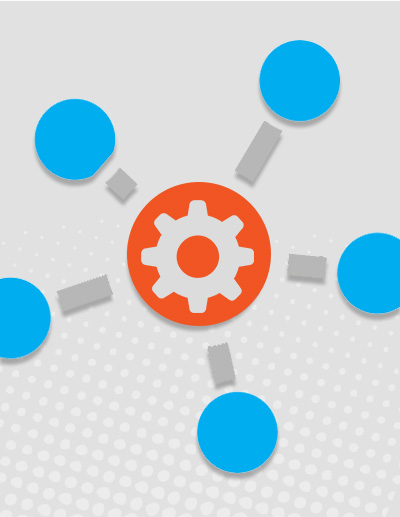
Collaborative tools
Collaborative tools, such as cloud computing, are quickly becoming a mandatory requirement as more businesses look to save money, gain a competitive advantage and operate globally.
Recommended course:
ES WSQ – Perform Online Collaboration (ICDL Certification Module: Online Collaboration)
Computational thinking
While automation is set to double in Singapore in the next 3 years, humans will still need to programme and manage machines – this requires skills in computational thinking, logic and reasoning.
Recommended course:
3. Technical Skills: Cerebellum
Technical skill development is associated with the brain’s procedural “how-to” memory. This is located in the cerebellum and can be developed through memory work and practice (e.g. motor learning).
While technical skill requirements vary from job to job, they can be standardised and in some cases, automated, so the key to succeeding in Industry 4.0 will be in creating your own unique combination with adaptive and technological skills.

At NTUC LearningHub, we believe in helping you prepare not just for a job, but for a long-lasting career. For more information on how we can help, talk to our friendly Course Consultants at NTUC Trade Union House, Devan Nair Institute for Employment and Employability, LHUB @ Tampines Mall or any of our roadshows islandwide.

6 Career Planning Questions to Ask Yourself Before the Year Ends
Whether you changed jobs, learnt new skills or stayed in your current position, there’s one thing for sure: you’re a different person from the one back in January. Here are 6 crucial questions to help you reflect on the year that’s passed and start making plans for the year ahead.
1. What career goals did I accomplish?
What did you set out to achieve at the start of the year and which of those did you actually accomplish? Starting with the big ones like landing a new job, then moving on to the small ones like taking an online course, list out your accomplishments. While the small ones may seem insignificant, everything matters. Be grateful for what you were able to achieve and recommit to those that are yet to be done.

2. What held me back?
Now if there were a lot of things on your yet-to-be-accomplished list, don’t beat yourself up about it. We are all bound to encounter roadblocks – what sets leaders apart though is that they are willing to face up to them. Was it your thoughts or work productivity habits? Did you have unrealistic expectations? Or was it something completely out of your control? Being honest about this may be uncomfortable, however, becoming aware of the core reasons enables us to learn and grow, which brings us to our next question.3. What have I learnt?
Learning is a lifelong pursuit and every year offers a new opportunity to grow in our vocation and industry. Looking back in 2018, how did you develop your skills and subject matter expertise? Did you attend a conference or gain a certification? Did you attend a class or take an online course through sites like Udemy? Identifying the professional areas that you have developed will show you just how much you have grown, bolster up your resume and open up new career opportunities.

4. What do I love about my current career?
Life isn’t all about work; however it does, on average, make up over a quarter of our week. Consequently, there should be aspects that make it enjoyable, meaningful and fulfilling. In your case, what aspects do you love about your current career? Is it the people? The work? The growth opportunities? Never forget what brings you joy at work and focus on nurturing those aspects.5. What needs to change?
Whether you love or loathe your current career, there’ll always be something that can be improved. The important thing is to remember that you have the power to affect change and make things better for yourself and those around you. Maybe you need to have a heart-to-heart with your boss. Maybe you need to upskill to scale the career ladder. Or maybe it’s time to make that career transition that you’ve been putting off. Identify what needs to change so that you can be the change in the new year.

6. What are my goals for next year?
Now that you’ve taken stock of the lessons of 2018, it’s time to look to the future. What does a successful 2019 look like and what do you need to do to make it happen? Start off by identifying your top 3-5 goals for the year – dream big, no regrets – then break each one of them down into quarterly, monthly and weekly goals. Once you have written them out, share them with people who can help you develop a plan and keep you accountable to them (e.g. your boss, colleagues, spouse, family or friends). And once you’ve done all of that, give yourself a pat on the back and a bit of a break because before you know it, the new work year will be upon us!We know how hard it can be to pursue your career goals. However, you don’t have to do it alone! For more information on how we can help you along your journey, follow NTUC LearningHub on Facebook or talk to our friendly Course Consultants at NTUC Trade Union House, Devan Nair Institute for Employment and Employability, LHUB @ Tampines Mall or any of our roadshows islandwide.

8 Work Resolutions You’ll Want to Keep in the New Year
In light of a rapidly changing economy that demands new skills, here are 8 new year’s work resolutions that will prepare you for a fruitful 2019 and beyond.
1. Open Up your Options
With the Ministry of Trade and Industry (MTI) expecting a slow down in the economy in 2019, now is the time to secure your future by learning new skills. As more companies are going online, there will be an increase in demand for digital skills such as analysis, big data and e-commerce in IT and IT-dependant industries like HR, financial services and sales and marketing. While job movers can expect pay increments of up to 15 percent, the shift to digital also opens up the opportunity to run a side business (e.g. an e-commerce store) or solidify one’s position in an organisation.

Re commended course:
Global E-Commerce Insights and the Future of E-Commerce
Harness the Potential of Big Data
2. Learn to negotiate for better prospects
While upskilling opens the doors for career progression, it is the ability to negotiate that enables you to walk through them. Whether it is with your team, boss or a potential employer, negotiation is an essential skill to develop so that you can put your best foot forward, deal with push backs and create win-win situations for all parties.

Recommended course:
WSQ Participate in Negotiations powered by Wiley
3. Be a team player
As companies face increasingly complex problems, they will need people with diverse skill sets to come together and solve them. While teamwork has its challenges, it offers many benefits in raising productivity, innovation, and morale. It also exposes you to different skill sets and personalities, enabling you to sharpen your communication skills, learn from those around you and develop professional networks that could lead to bigger career opportunities down the track.

Recommended course:
Working in a Team (ES WSQ – Work in a Team)
4. Communicate effectively for success
Communication is listed as one of the top skills to succeed in the future economy. This shouldn’t come as a surprise though as more workers have to engage in cross-border communications and utilise big data to present and support their ideas. No matter what industry you are in, effective communication will help you to strengthen your professional relationships and gain consensus on your proposals.

Recommended course:
WSQ Articulate & Discuss Ideas powered by Wiley
5. Embrace and champion change
The new year brings about change – both in our personal lives and changes in the nature of work with trends such as automation, hyperconnectivity, an aging workforce and a burgeoning middle class coming to the fore. The key to managing this is to not only adapt to the evolving demands of the workplace but also to take a proactive role in inciting change and getting those around you to support it.

Recommended course:
Kotter Change Essentials Programme
6. Work on-time, not over time
Your expertise in project management can make or break a project. It’s always a good idea to set clear objectives, plan realistically, produce high-quality deliverables and stick within your timelines and budgets. The Project Management Institute (PMI) forecasts that 22 million new project-oriented jobs will be created by 2027, so there will be ample opportunities to create value with this skillset, no matter the job role or industry.

Recommended course:
NICF – Project Management Professional (PMP)®
7. Fortify your digital future
Digital skills will be in hot demand in 2019 as the government continues to transform Singapore into a smart nation. To cater to an increasingly tech-savvy and mobile-first population, job candidates will be expected to be fluent not only in digital languages and social media tools but to also have an understanding of emerging technologies. Fortunately, these are skills rather than talents that can be learnt at any age.

Recommended course:
SkillsFuture For Digital Workplace
8. Make time for yourself
According to data in Happiness at Work, the average person will spend over 90,000 hours at work over the course of their lifetime. Add in the habit of answering emails after work hours and this amount can be further inflated. There is something you can do about this though and that is to block out time in your schedule to focus on the activities that feed you. Online courses, such as those at Udemy, offer you the perfect opportunity to explore, ignite and develop your passions all at your own pace.

Recommended course:
Ready to make 2019 your best work year yet? This year, be a winner in both your career and our lucky draw. Stand to win a pair of tickets to Bangkok when you talk to our friendly Course Consultants at NTUC Trade Union House, Devan Nair Institute for Employment and Employability, LHUB @ Tampines Mall or any of our roadshows or sales centres islandwide from 3 Jan – 3 Feb 2019.

5 Valuable Skills Every Millennial Should Pick Up
The ‘skill gap’ as we know it today, between millennials and the generation before, usually focuses on bridging the gap in technical skills and all things digital. But what about life away from our computers and devices? Would millennials still have the upper hand? Here are five essential life skills millennials should learn about.
1) Getting Around Without a GPS
Before Google Maps, people could get around unfamiliar places just fine. Improving your orientation skills does not mean that you start using paper maps. Go ahead and Google that destination to have a rough idea of where you’re headed, but try to memorise the routes, and when in doubt, simply approach the nearest friendly face for directions! You never know – this little exercise could help you overcome your shyness around strangers.
2) Splitting the Bill Without a Calculator
Armed with a smartphone, simple calculations are made even simpler at the push of a button. There is no question about the convenience it brings, but using a shortcut like this means robbing your brain of the regular stimulations it needs to stay in shape. Neurobiologist Dr. Lawrence Katz explains that “mental decline is not usually from loss of brain cells as much as it is from loss of communication between brain cells.” So the next time you’re splitting the bill, put aside that calculator and exercise your mental muscles instead. Your older self will thank you for it.
3) Learning to Write Beautifully
When was the last time you wrote instead of typed? Chances are, it wasn’t that long ago. Most of us still write in some way: keeping notes, jotting down random thoughts and signing important documents. While it’s possible to differentiate one man’s penmanship from another, did you know that your handwriting also contains clues to your health? If having a pretty handwriting isn’t on your list of priorities, perhaps this would encourage you to pick up the pen more often.
4) Reading a Book Cover to Cover
Some may argue that it’s not necessary to read a book from beginning to end. Nonetheless, studies have shown that any form of reading improves your mood, critical thinking skills, sense of empathy, among other health and cognitive benefits. Want to make the best of it? Check out these tips to help you read cover to cover so you can better absorb all the goodness that comes from a good book!
5) Holding a Conversation Without Distractions
With social media, you may be talking to people every day, but are you truly communicating? When you’re in a room with other people, are you able to go beyond the banalities of small talks and speak in a way that they will listen? Hear it from the experts in this illuminating TED Talk playlist to learn the ingredients of a great conversation and find more tips here to help you master the art of meaningful conversation.

40 Year Old’s Guide To Getting A Job In Singapore’s Booming ICT Industry

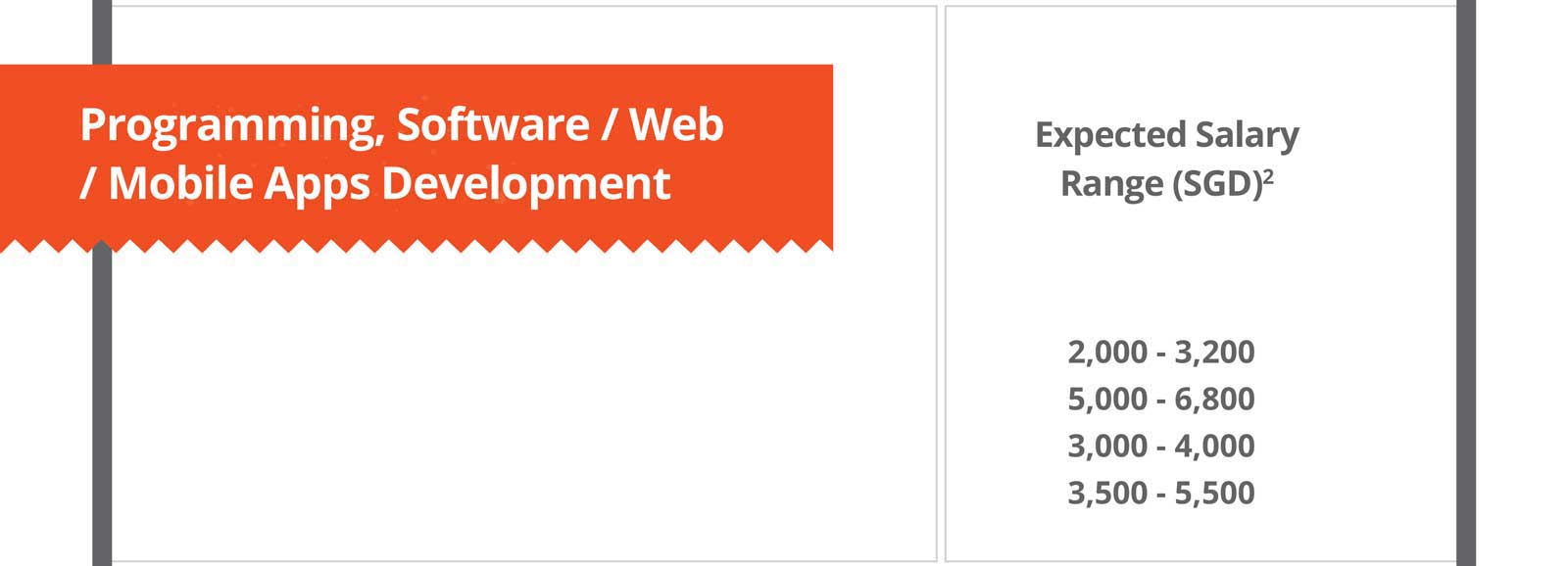
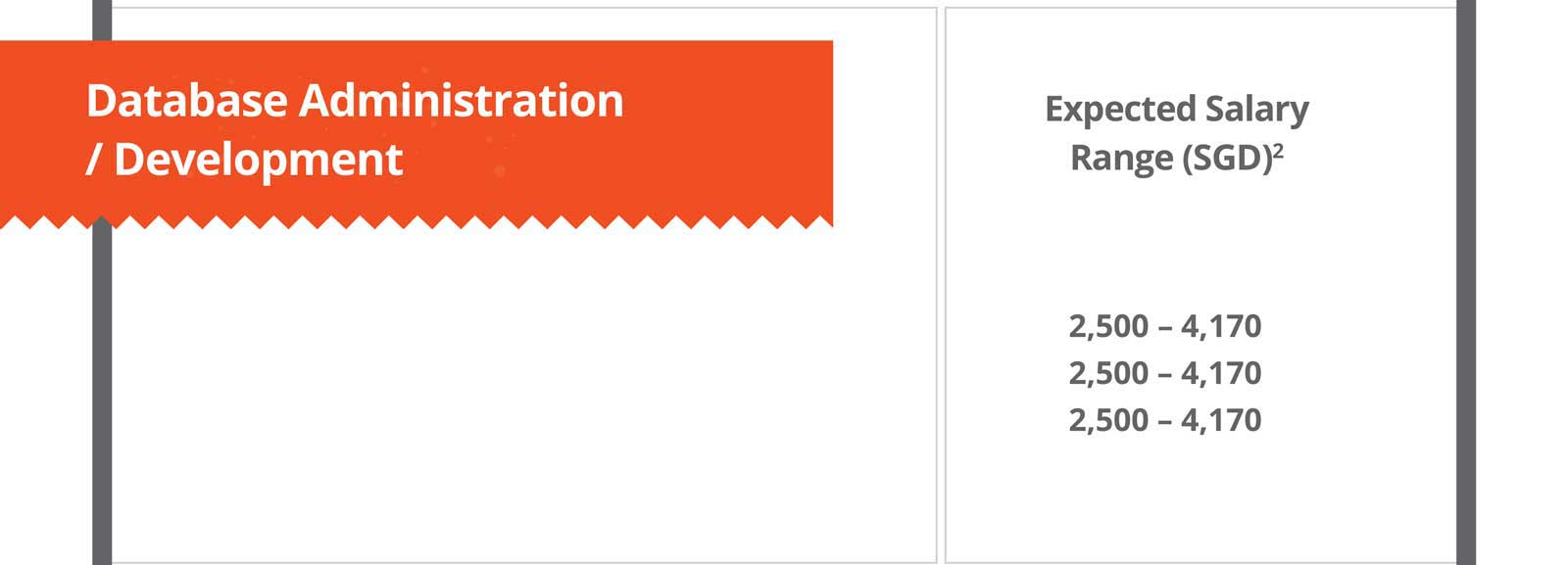
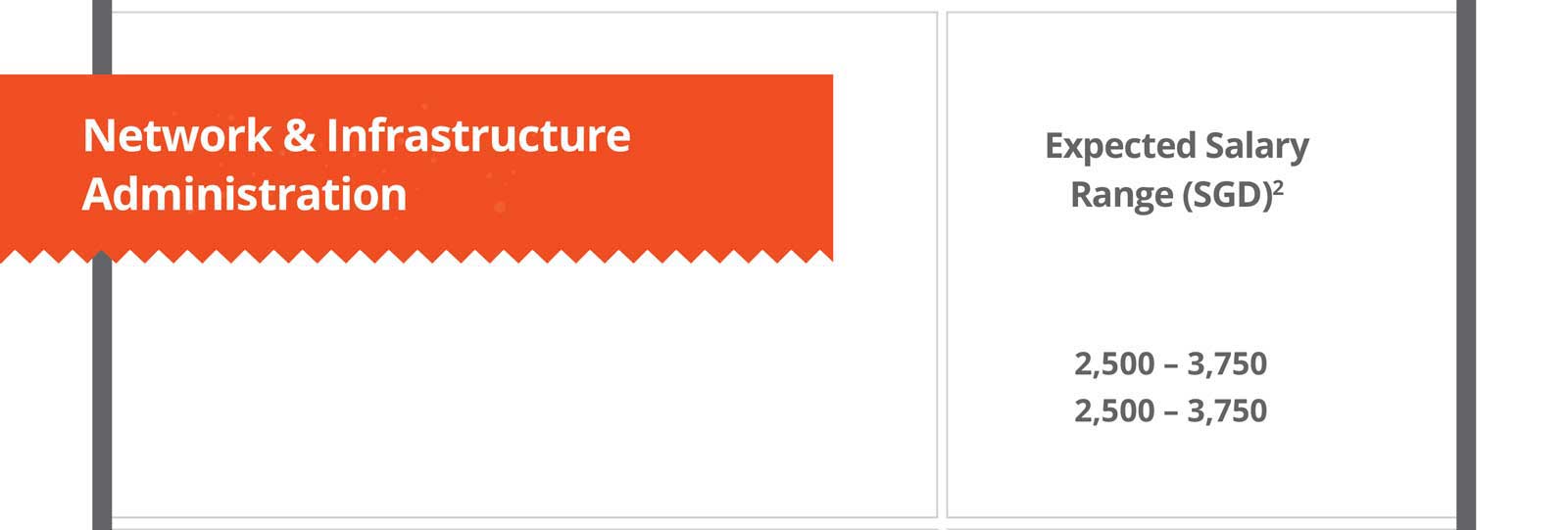


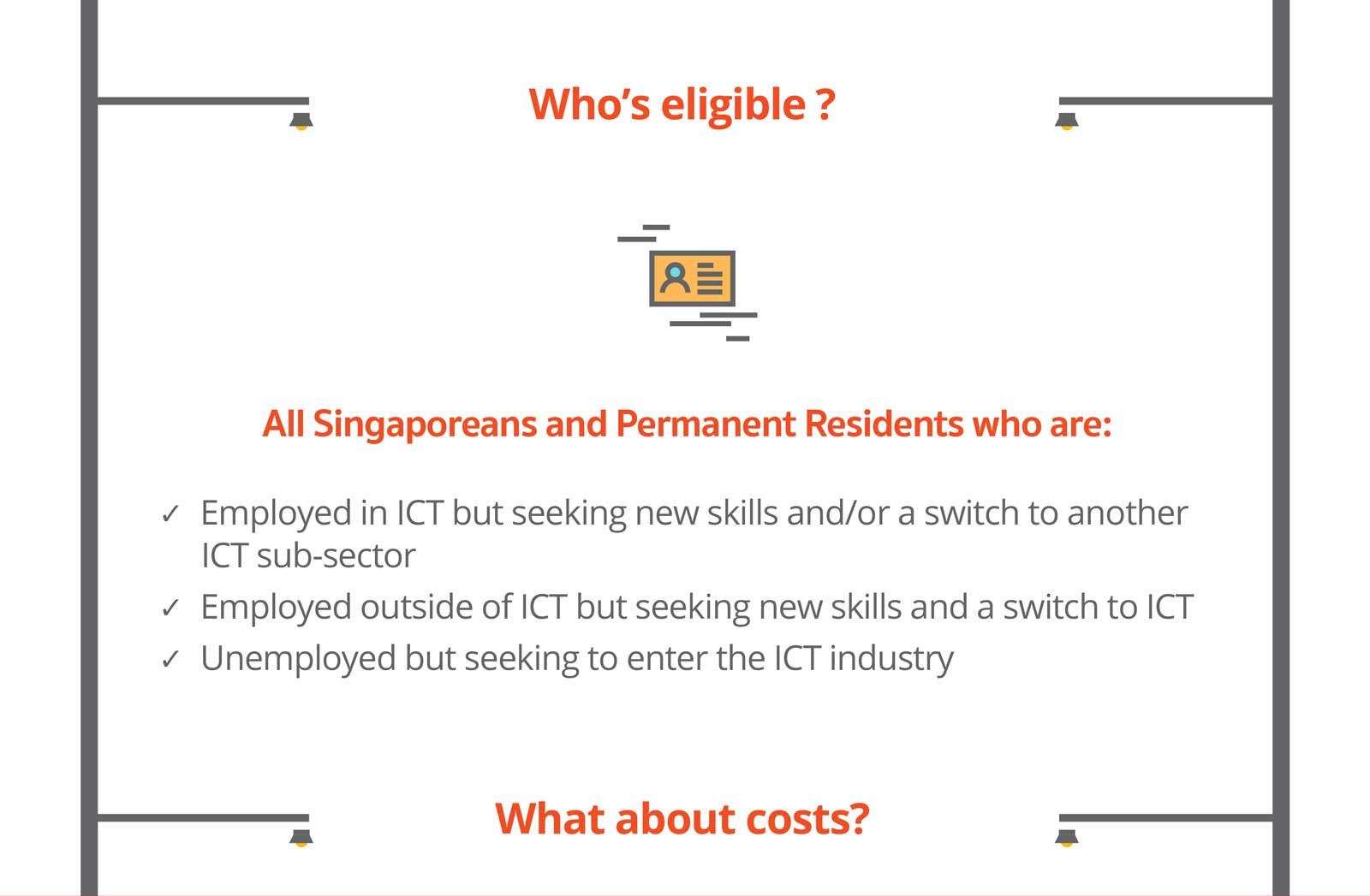

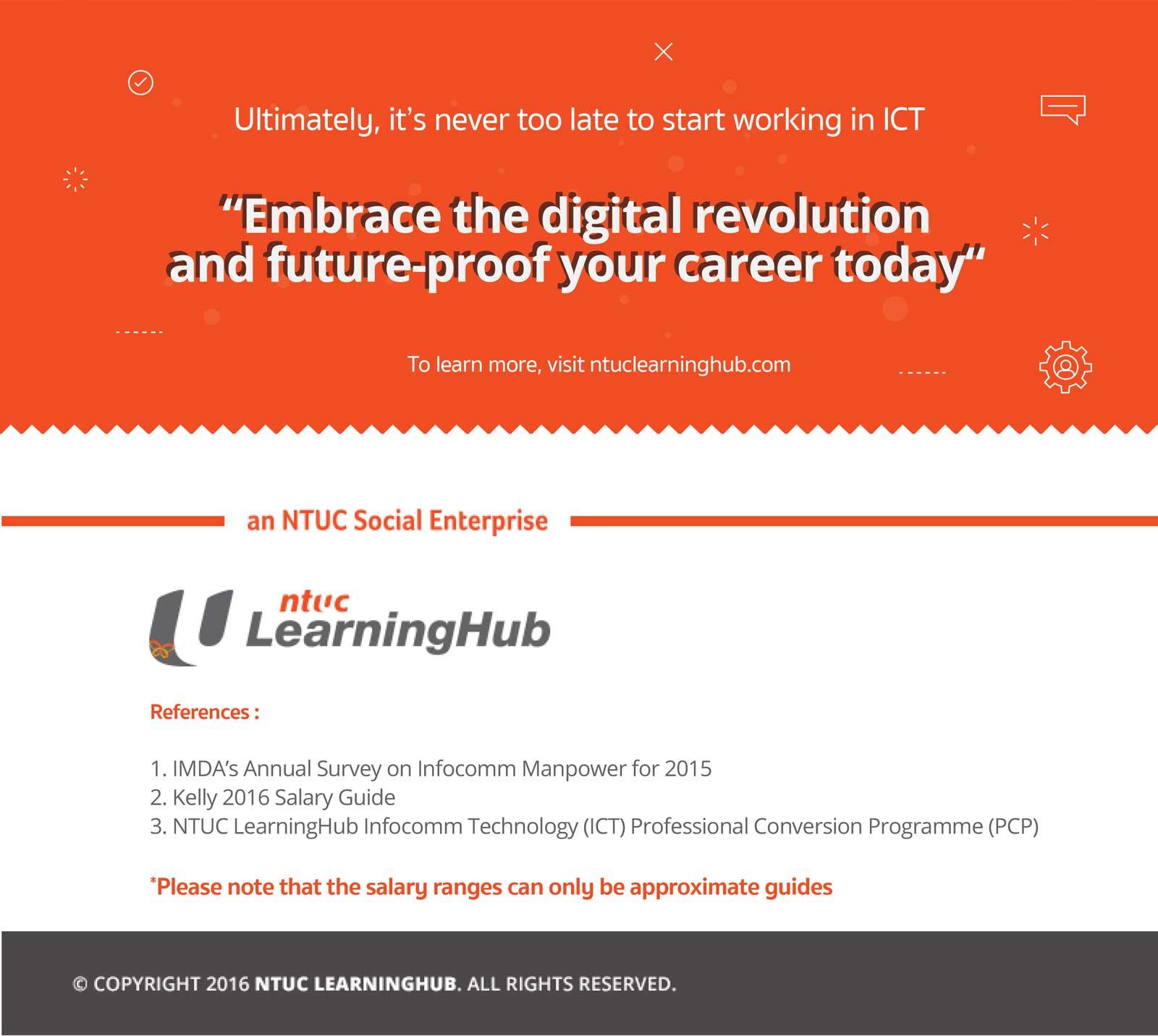

7 Skills You Need to Succeed in Human Resources
With technology, globalisation and workplace expectations dramatically changing, there’s never been a more exciting and opportunistic time to be in human resources.
However, success will heavily depend on a new set of competencies, mindsets, and behaviours – a message that has been reflected in the Singapore government’s newly launched Industry Manpower Plan.
Whether you work for a large multinational company or a local SME, here are the top 7 skills that you need to be cultivating.
1. Recruitment & Selection
As global competition continues to intensify, there will be increased pressure to discover the best talents efficiently. While digital technologies will play a crucial role in managing the hiring process, traditional soft skills won’t be going out of fashion. Interviewing, for example, will still be critical as the best paper applicants are not necessarily the best people for the job!
Recommended Course: Implement Recruitment and Selection Methods
Designed for anyone involved in recruitment and selection, this course empowers HR professionals to select and improve recruitment and selection methods that comply with regulations.

2. Learning & Development
Successful organisations don’t just hire the right people – they invest in them too! While Learning and Development (L&D) programmes have been around for years, their delivery has evolved. Organisations are increasingly on focusses developing teams in addition to individuals, and technology has opened up new possibilities through gamification, virtual reality, mobile learning and micro-learning (short 90 to 120-second videos).
Recommended Course: CIPD Level 3 – Diploma in Learning and Development
Having set the benchmark for excellence in people and organisation development for over 100 years, the Chartered Institute of Personnel and Development (CIPD) helps HRs stand out from the crowd with a firm foundation and professional recognition in the field of learning and development.
3. Coaching
Coaching is one of the fastest growing industries as more people and organisations seek to maximise their potential. Given that coaching utilises an array of soft skills such as listening, questioning, feedback, rapport-building and one-on-one planning, experienced employees are particularly suited for applying them in the workplace and helping to establish a coaching culture.
Recommended Course: HR as an Organisational Coach-Mentor
This 2 day training course empowers HR & L&D professionals to coach executives and managers to become the best leaders they can be while developing effective coaching environments.
4. Change Management
There are more freelancers and temp workers than ever before, work permit requirements are constantly changing and SMEs are finding it difficult to attract top talent. While these changes could be seen as threats, they have also given rise to new opportunities such as freelancer fairs, online foreign worker quota calculators and services like P-Max, which pairs job-seeking PMETs with vacancies at SMEs. The best HRs will know how to respond to these changes and influence their organisations to move with them.
Recommended Course: The Influential HR and Stakeholder Management
This 2 day course teaches HRs how to build successful partnerships within their organisation so that they can shape their company’s agendas. A Certificate of Attendance is offered by the CIPD upon completion.


5. Analytics
How will you know if your current recruitment strategy is working? How will you know if your learning development programmes are actually helping people to grow? The answer is analytics. While there are many different types of software packages that can do everything from track time (e.g. Harvest) to manage leave and performance evaluations (e.g. TribeHR), the key is knowing how to draw the right insights to inspire informed HR decisions.
Recommended Course: HR Strategic Analytics and Reporting
This 3 day course provides a thorough overview of HR analytics and how to use commonly available data software and tools.
6. Holistic Thinking
Although human resources is often seen as a function in its own right, it does not operate in a vacuum. Rather, it works in relation to all other departments. Consequently, successful HRs take a holistic approach so that HR can be used as a strategic tool to reach an organisation’s short and long-term goals.
Recommended Course: HR Business Savvy Skills
This 2 day workshop teaches HR professionals how to address problems and challenges through HR, how to be more entrepreneurial in HR and how to evaluate the value of HR to an organisation.
7. Termination & Re-employment
Whether it is due to poor work performance or disciplinary action, everyone who works in HR has to deal with termination at some point. While this is often seen as the ugly side of the business, understanding best practices as well as the latest labour policies and legislation will help to smoothen out the process for all parties involved.
Recommended Course: Managing Termination Dismissal and Re-Employment
This 1 day course ensures that HR professionals know how to implement termination and re-employment processes that are aligned with both their organisation’s needs and Singapore’s employment laws.

The organisation of the future will depend on the power of their people. Develop your HR skills and expand your career prospects by putting your SkillsFuture Credit to use today.

A Jobseeker’s Guide to Benefits, Funding and Claims in Singapore
We all know the importance of training programmes in finding and building our careers. But did you also know that there are support programmes available to make it more affordable for Singaporeans?
Whether you are a mature PMET (Professionals, Managers, Executives and Technicians), looking for a change in industry or career, or are on a low income, read on and discover the many funding schemes that can support you in realising your career goals.
Mature PMETs
Skills Development Fund (SDF) for Individuals
Are you a PMET who is hungry for continual learning and growth?
Available to both self-sponsored and company-sponsored Singapore Citizens and PRs, the SDF offers up to 95% of funding for SSG-funded courses at both PME and non-PME level.
The programme also gives employers further incentive to invest in their mature employees by offering up to 95% of absentee payroll funding.
Learn more about applying for the SDF as an individual.
CITREP+ Microsoft On-Demand
Keeping up with all the latest shifts in the ICT industry can be expensive. Fortunately, CITREP+ helps you do it effectively and affordably.
Through proactive training and funding support, CITREP+ offers up to 100% of the nett payable certification fees (capped at $500 per trainee) for the following two courses.
- NICF – Project Management Professional (PMP)®
- NICF – ITIL® Foundation Certificate in IT Service Management
To apply for CITREP+, you must be a self-sponsored Singapore Citizen or PR, or a trainee who has been sponsored by an organisation that has been incorporated or registered in Singapore (Local Government Agency employees can only apply through self-sponsorship).
Don’t let your ICT skills fall behind – learn more about CITREP+.

Mid-Career Switchers
SkillsFuture Mid-Career Enhanced Subsidy
In need of training to keep up with the changing workplace?
Open to Singapore Citizens aged 40 and above, the Skills Future Mid-Career Enhanced Subsidy supports upskilling and reskilling by offering up to 90% off course fees for SSG-supported certifiable courses.
Of course, if you are already under the Workfare Training Support (WTS) Scheme (which we’ll discuss later), you will continue to receive 95% course fee funding support.
To learn more about the subsidy Skills Future Mid-Career Enhanced Subsidy.
Infocomm Technology (ICT) Professional Conversion Programme (PCP)
Been wanting to shift into Singapore’s booming ICT sector but don’t know how to make the jump?
NTUC LearningHub has partnered with SkillsFuture Singapore (SSG) and Workforce Singapore (WSG) to offer a place-and-train PCP that enables mid-career switchers to become qualified ICT professionals. While there are many different career paths in ICT, area include software, web and mobile app development.
To apply for the ICT PCP, you’ll need to be a Singapore Citizen or PR who meets one of the following:
- Currently employed in ICT but seeking to acquire new skills and/or switch careers to another ICT sub-sector
- Currently employed in industries other than ICT but seeking to acquire new skills and switch careers to ICT
- Currently unemployed but seeking to enter the ICT industry
Find out more about shifting into the ICT sector.

Career Support Programme (CSP)
Are you a mature PME who has been actively looking for jobs for a considerable period of time?
The CSP supports mature PMEs in finding work by offering up to 18 months of wage support (capped at $42,000) to employers who are offering suitable job opportunities. New hires can also be sent for SSG-funded courses with fee support depending on prevailing SSG rates and existing processes.
To be eligible for the CSP, you must adhere to the following:
- Individuals
- Singapore Citizens aged 40 years and above who have been made redundant or unemployed and actively looking for jobs for 6 months or more
- Singapore Citizens aged below 40 years who have been unemployed and actively looking for jobs for 6 months or more
- Employers
- Company is registered or incorporated in Singapore
- Employs eligible PME job seeker(s) with a permanent job or employment contract duration of at least 12 months and a monthly gross salary of at least $4,000 (basic salary plus allowances attracting CPF contribution)
- Provides eligible PME job seeker(s) with approved structured On-The-Job training (OJT) or sends him/her for external SSG-approved training
Low-Income Workers
Workfare Training Support (WTS)
Skills training is not just for business owners and managers – it’s for everyone, including low-income workers seeking to increase their earning potential.
If you are a Singaporean Citizen aged 35 and above (or are 13 years and above with Disabilities) and earn not more than $2,000 per month, Workfare Training Support (WTS) can help you upskill and improve your career prospects.
WTS offers:
- 100% funding support for selected basic skills training such as foundational skills in numeracy
- 95% course fee funding and absentee payroll for a wide range of courses
- Training allowance of $4.50 per training hour (for those who meet criteria)
- Cash awards of up to $400 per year under the Training Commitment Award (TCA), and up to $1,200 under the Continuing Education and Training Qualification Award (CQA)
Interested? Learn more about the WTS Scheme.

General Public
UTAP (for NTUC members)
Are you a NTUC member? If so, you also have access to the Union Training Assistance Programme (UTAP)!
This unique training benefit offers NTUC members up to $250 in training benefits per year, which can be used on a whole range of UTAP-supported courses ranging from manufacturing to construction to infocomms and management (see the full list here).
To be eligible, NTUC members must meet the following conditions:
- Paid-up union membership before course commencement, throughout whole course duration and at the point of claim
- Course by training provider is supported by UTAP and training must commence within supported period
- UTAP funding is only applicable on the course fee not funded through company sponsorship or other types of funding
- Unfunded course fee must be S$20.00 and above
- Achieved a minimum of 75% attendance for each application and sat for all prescribed examination(s), if any
- UTAP application must be submitted online within 6 months from the course end/exam date.
Get more out of your NTUC membership today with UTAP.

Enterprise Training Support (ETS) Scheme
Running an organisation and want to get the best out of your employees?
The Enterprise Training Support (ETS) Scheme helps you raise employee skills and productivity, develop Human Resources (HR) and management systems and practices tied to training, as well as benchmark compensation and benefits to market rates.
Available to all organisations, companies, societies and non-profit organisations registered or incorporated in Singapore, the ETS Scheme offers a whole range of grants, which can extend to up to as much as $200,000 per organisation.
There is a caveat though – those who have tapped into government assistance schemes in the past, for similar funding components, may not qualify for some specific grant components.
Learn more about the ETS Scheme.
That brings us to the end of our roundup of funding and claims programmes in Singapore! There are however even more and if you’d like to learn about them, click here.

Top Programming Languages Employers Look Out For
With thousands of programming languages to choose from and a booming ICT industry in Singapore, which ones should you be learning to further your career?
We’ve compiled a list of the most in-demand programming languages to help you make the right choice. Rather than learning just one of them, aim for three or more to enhance your versatility and really stand out from the crowd.
Java
Industry Focus: Finance, Healthcare, Enterprise
Java is worthy of a first mention as it not only underpins sites like Amazon and LinkedIn, but it is also the most popular programming language in the world building everything from server-side applications to video games and Android apps.
There are several versions of Java though including SE (Standard Edition) and EE (Enterprise Edition). If you are new to Java, SE is a great place to start. However, if you want to work with companies requiring large scale, distributed systems, go for Java EE.
Courses:
- NICF – Oracle Certified Professional, Java SE Programmer
- NICF – Front-end Web Application Development with Java EE
PHP

Industry Focus: Web Development
Providing the building blocks to some of the world’s biggest sites such as Facebook and Wikipedia, PHP is a free and open source server-side programming language that meets the needs of both beginners and experienced users.
PHP is incredibly useful to have in your toolkit as it runs on many platforms and is used by over 80% of websites. The key to fully leveraging its power however, lies in combining it with other languages such as JavaScript, SQL and HTML.
Courses:
Swift
Industry Focus: iOS Development
If you love Apple products and want to write for iOS, then learn Apple’s new programming language, Swift.
Since launching in 2014, Swift has grown in popularity due to its speed and scalability coupled with an increase in demand for mobile apps. Used by San Francisco-based rideshare company Lyft, it’s simple to learn and viewed by many in the industry as “trendy” – two factors that are attractive to an entry-level developer.
Courses:
Android Programming
Industry Focus: App Development
There’s no doubt however that Android is leading the operating system wars and according to GlobalStats, it is currently enjoying a market share of around 58% in Singapore, 82% in Malaysia and 85% in Indonesia.
The dilemma with programming for Android is deciding upon which language to learn. While Java has traditionally been the go-to language for Android development, the recently released “Kotlin” has been predicted to take the top spot in the future.
Courses:

GO

Industry Focus: Networking, Web Servers and Automation
Free, open source and built by Google, Go is used by large companies like Adobe and Facebook, and won Tiobe Index’ Programming Language of the Year 2016 award.
It isn’t uncommon to find high salaries associated with Go and according to Kevin Troy, Director of Developer Insights at Stack Overflow, a big reason for this is the rising importance of cloud and big data.
HTML5
Industry Focus: Web Development, Finance
While HTML5 is a scripting rather than a programming language, it’s a must for any web developer. Aside from enabling you to build rich web-based apps that can run on any device through a regular web browser, learning HTML5 will give you an edge in the financial sector.
Comparing the number of Singapore-based vacancies in the financial sector to the number of local IT candidates across six key programming languages, efinancialcareers found HTML5 to be the most desirable programming skill to possess given that supply has been slow to meet demand.
Courses:
C#
Industry Focus: Microsoft Programming
C# is an object-oriented programming language used to build a variety of secure and robust applications on the .NET Framework. Developed by Microsoft and used by companies like GoDaddy and Intel, it’s (not surprisingly) a must for developing Microsoft enterprise software and apps for the Windows phone operating systems.
Also part of the .NET framework, ASP.NET is an open source framework used to create simple, fast and highly scalable web apps and services. It also happens to be the second most used programming language in Singapore at 20%. ASP.NET may be of particular use in the future as it can help organisations leverage upon the trends towards IoT and big data.
Courses:
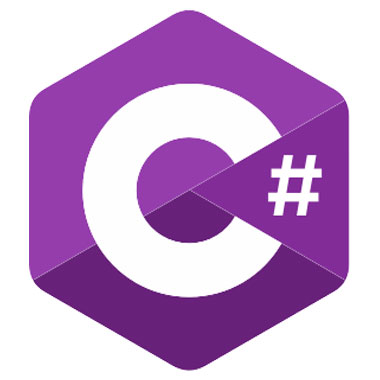
C++
Industry Focus: Games Development
A powerful and high-performance language, C++ is used to build system software, desktop and web apps, and games.
Opportunities look particularly bright in the game development scene as it is Singapore’s fastest-growing media sub-sector. It should be kept in mind though that C++ is a little more difficult to learn and will take a sound understanding of programming knowledge to master.
Python
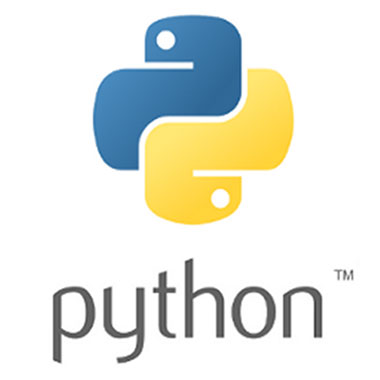
Industry Focus: Finance
Used by companies like Instagram, YouTube and even NASA, Python is an open source programming language that is loved for its emphasis on code readability.
Python has become increasingly popular amongst data scientists and the banking sector as according to Paul Bennie, Managing Director of financial technology headhunters, Bennie MacLean, the supply of talent has not kept pace with demand.
That brings us to the end of our list of most in-demand programming languages! While it is by no means exhaustive, it provides a great foundation to thrive in Singapore’s burgeoning IT industry. If you’d like to learn how SkillsFuture Credit can help you offset your course fees, click here.

